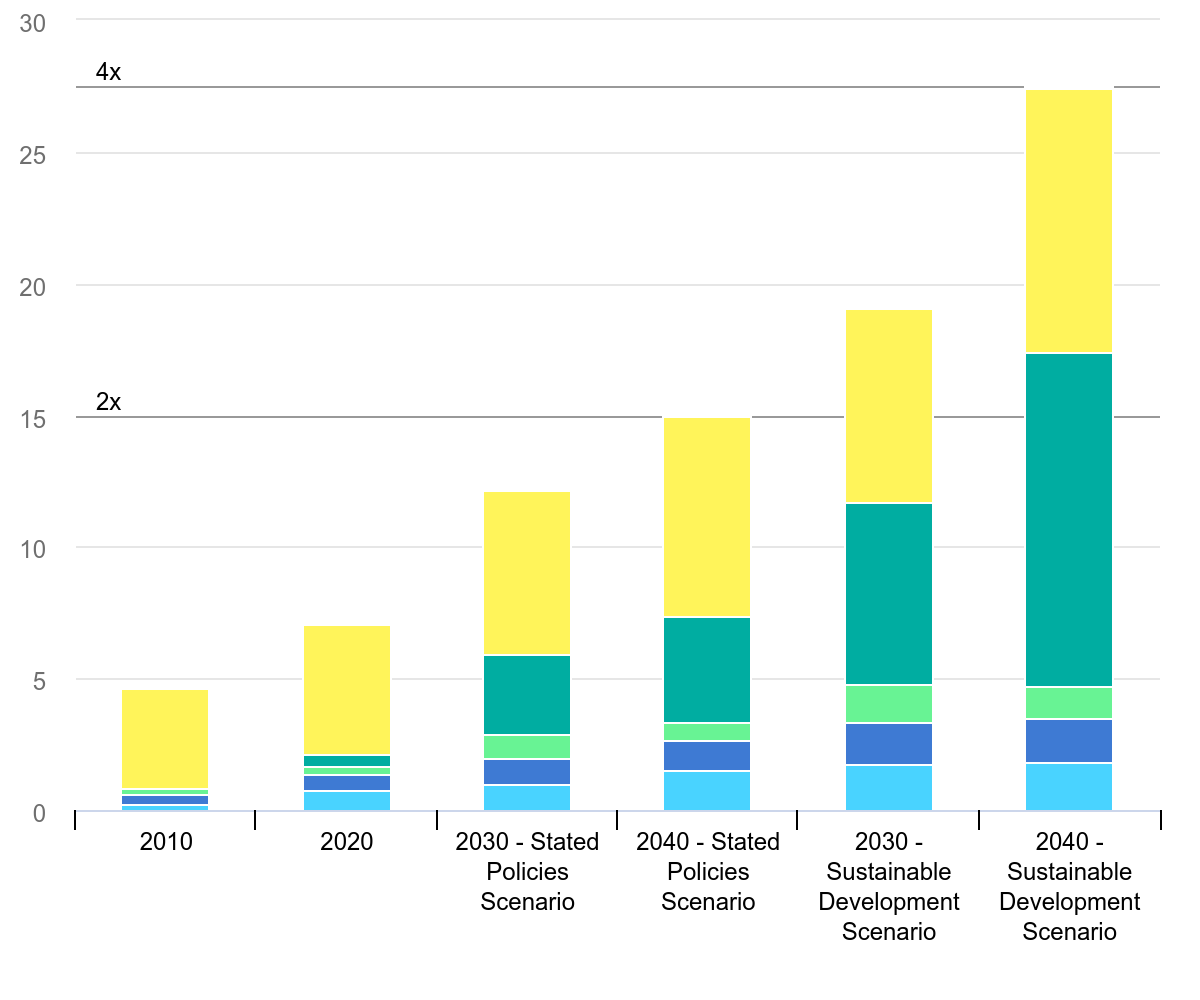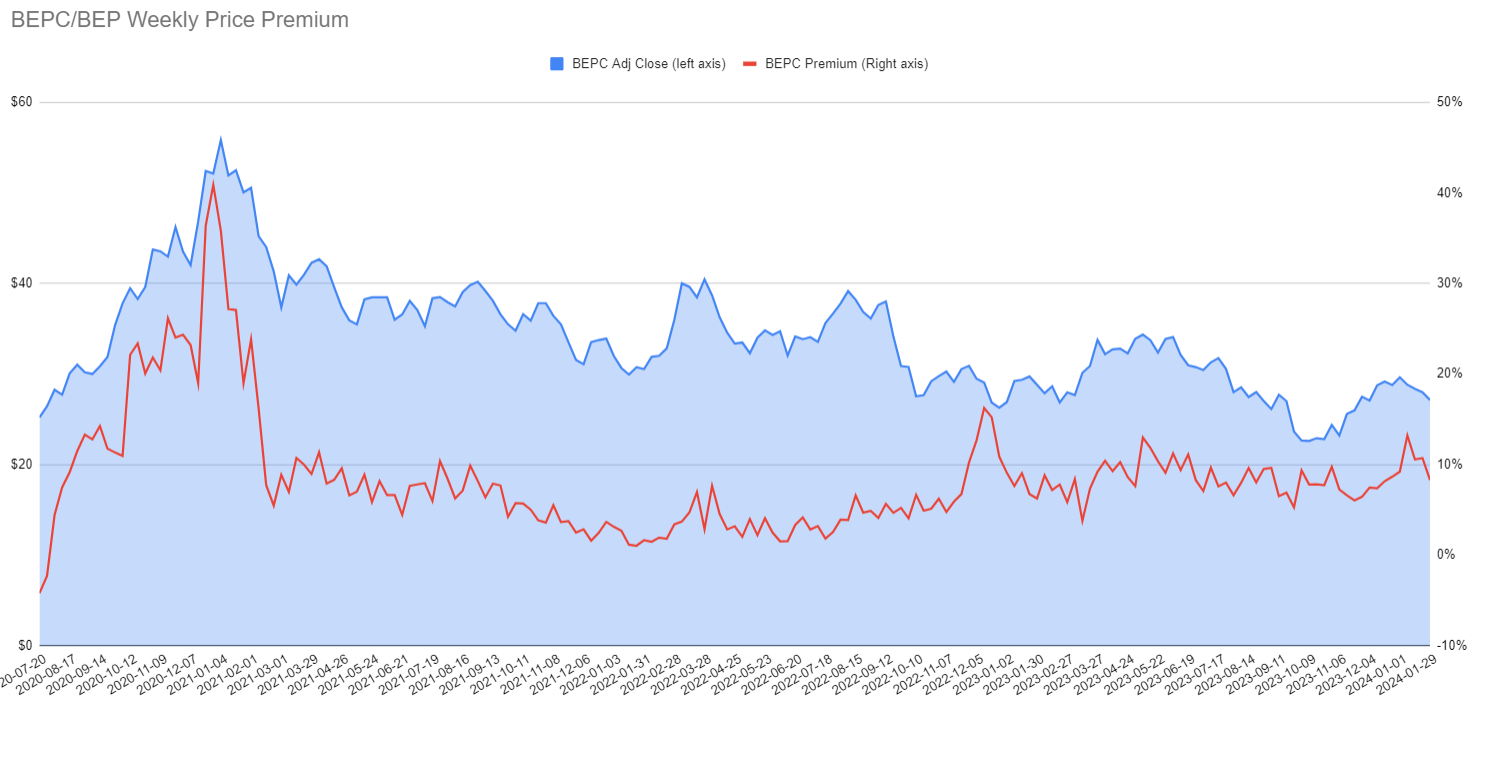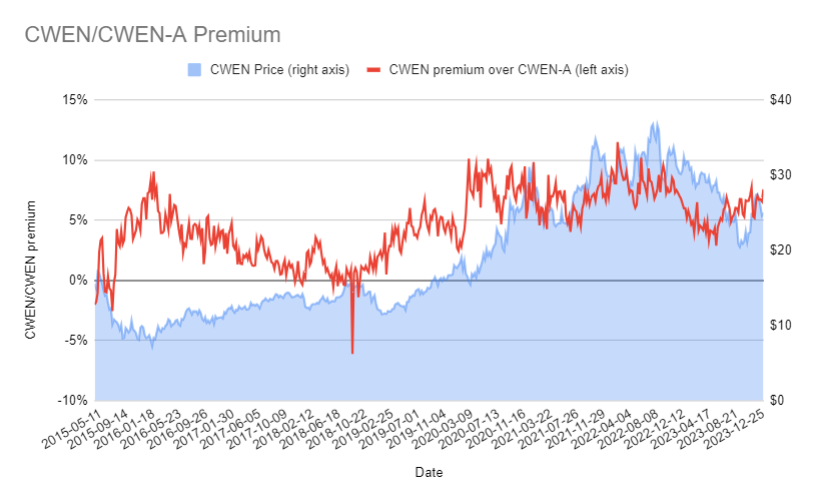


todayAugust 16, 2021
All Posts Commodities People
All PostsBlogRegulations, Compliance & Legal
todayMarch 31, 2023 27

The Impact of Environmental Regulations on Energy Trading
As the world continues to grapple with the effects of climate change, there has been an increased focus on environmental regulations aimed at reducing carbon emissions. These regulations have had a significant impact on the energy trading industry, with companies having to adapt their business models to remain compliant and competitive. Many energy trading companies have invested in renewable energy sources to reduce their carbon footprint and meet regulatory requirements. Additionally, the implementation of carbon pricing mechanisms has also influenced the decision-making process of energy traders.
One of the major challenges facing the industry is the EU Emissions Trading System (ETS). The system, which was established in 2005, is a cap-and-trade system designed to reduce greenhouse gas emissions from industries such as power generation, aviation, and manufacturing. Companies are allocated a certain number of emissions allowances, which they can trade on the open market.
In 2023, the EU ETS will undergo significant changes with the introduction of the Carbon Border Adjustment Mechanism (CBAM). This mechanism will require importers of certain goods, such as cement and steel, to purchase emissions allowances to offset the carbon emissions generated during production. This has raised concerns about the impact on energy trading and the potential for trade disputes. Some experts argue that this mechanism could lead to an increase in the price of these goods, making them less competitive in the global market. Additionally, there are concerns about how this policy will be enforced and whether it will lead to unfair trade practices.
The UK ETS, which was established following the UK's departure from the EU, also presents challenges for the industry. The UK system closely mirrors the EU ETS, with companies required to purchase emissions allowances to offset their carbon footprint. However, the UK system has set a more ambitious target for emissions reduction, which could increase the cost of emissions allowances and impact competitiveness.
The UK's more ambitious target for emissions reduction is to achieve net-zero carbon emissions by 2050, which is a significant increase from the EU's target of reducing emissions by 40% by 2030. This could lead to greater investment in renewable energy and energy efficiency measures, but may also require companies to make significant changes to their operations.
Sustainable finance is another area that is having an impact on energy trading. The EU Taxonomy Regulation, which was introduced in 2020, sets out criteria for determining whether an economic activity is environmentally sustainable. This has led to an increased focus on investments in renewable energy and other sustainable activities, with companies having to demonstrate their compliance with the regulation to access funding. The EU Taxonomy Regulation is expected to play a crucial role in achieving the European Union's goal of becoming climate-neutral by 2050. It is also likely to drive innovation and investment in green technologies and infrastructure.
One example of the impact of sustainable finance is the growing trend towards green bonds. These bonds are issued to fund projects that have a positive environmental impact, such as renewable energy infrastructure or energy-efficient buildings. The market for green bonds has grown significantly in recent years, with companies looking to attract environmentally conscious investors. Investors who purchase green bonds not only benefit from potential financial returns but also contribute to the development of sustainable projects. This type of investment can help combat climate change and promote a more environmentally friendly economy.
In conclusion, the impact of environmental regulations on energy trading cannot be understated. Companies must adapt to remain competitive, and this requires a deep understanding of the regulatory landscape. The challenges posed by the EU and UK ETS, as well as sustainable finance, require a proactive approach from the industry to ensure that they remain compliant and successful in a rapidly changing world.
To stay ahead of the curve and ensure compliance with the latest regulations, be sure to attend Energy Trading Week London on the 28-29th September. The conference's dedicated “Energy Trading Regulations and Compliance” 13th edition will provide a one-stop-shop for industry professionals to discuss the newest developments in the space, expand their networks, and form new partnerships.
Key topics, including EMIR Refit, REMIT Review, sanctions, regulatory reporting, compliance culture, and regulatory technology, will be discussed by experts and regulators in the field.
Don't miss out on this opportunity to learn from the best in the industry and stay ahead of the game. Register your place now to attend the Energy Trading Week London and elevate your compliance strategy.
Written by: Commodities People

labelAll Posts todayMarch 15, 2023
PANEL DISCUSSION: PANEL:

labelAll Posts todayApril 11, 2024

labelAll Posts todayApril 11, 2024



Key Takeaways Nearly every solar panel in production uses silicon as its primary semiconductor. Solar panels rely on photons that travel over 93 million miles to generate the electricity that [Read More]

Key Takeaways: The more efficient solar panels are, the less reliant we become on fossil fuels, thereby reducing our carbon footprint. Maximizing solar panel efficiency starts with choosing the appropriate [Read More]

Key Takeaways: Whole-house solar generators offer backup power during a power outage and, in some cases, can temporarily replace grid power. Whole-house solar generators are designed to run your entire [Read More]

Key Takeaways Solar panels can last up to 30 years, and storage batteries can last up to 15 years, maximizing eco-friendly energy consumption. Solar panels with battery storage reduce reliance [Read More]

Moving to Maryland and setting up electricity is simple once you have some basic info. That’s where this guide for residential customers comes in. Whether you’re moving to a new [Read More]

TotalEnergies SE (LON:TTE) reported a smaller-than-expected drop in first-quarter profit as a resilient oil market partly offset lower gas prices. The post TotalEnergies’ profit drops less than expected on strong [Read More]

A project that will expand UK gas storage next year has been touted as a boon for Europe’s energy security. It’s also a substantial win for the small Gulf nation [Read More]

The merging of seismic firms PGS and TGS hangs on UK competition watchdog approval after Norway gave the green light. The post UK competition watchdog launches inquiry into oil and [Read More]

Danish helicopter firm Uni-Fly appears to be further expanding into offshore oil and gas operations with AW169 contracts in Spain and the Southern North Sea. The post Danish helicopter operator [Read More]

Reach Subsea is planning to double headcount and launch a new base in Aberdeen by the end of the year, operating as a hub for UK and international operations. The [Read More]
Octopus Energy is made up of 3,000+ fantastic people working on stuff you'd never expect, all pushing hard towards a shared goal: driving the global green energy revolution. In our [Read More]
Here's a guide to the most important part of switching energy supplier – working out your handover meter readings. [Read More]
With Phil’s help, Octopus Energy are building the smart energy system of the future, today. [Read More]
Fossil fuels won’t last forever, so when will they run out? [Read More]
As homeowners and tenants, you might want to find out how much you could be paying for your gas and electricity bills. [Read More]
The US Department of the Interior is stepping up regulations to protect federal lands from the havoc of fossil fuel development and rampant disregard for endangered wildlife. It has announced [Read More]
I wrote a couple of days ago that Tesla produced 1,000 Cybertrucks one week last month. It’s a notable milestone, but if that was the output every week this year, [Read More]
Growing up around El Paso and southern New Mexico, Guadalupe Mountains National Park has long been a place to go. As a kid, I spent a lot of Saturdays getting [Read More]
Rad Power Bikes was the first brand to truly move into the electric bike space with a full range of models and has been a dominant brand ever since. A [Read More]
In a recent article, I wrote about problems I had charging a Kia EV9 I’m reviewing. The vehicle itself has been great, but I wasn’t able to charge at two [Read More]
By 19 October 2023, Zimbabwe had recorded 115 suspected cholera deaths — 34 confirmed — and 5,256 suspected cases according to a situational report from the country’s Health and Child [Read More]
Africa is facing a tripartite problem that often require access to foreign funds. But Official Development Assistance flows from developed to developing often come with a caveat – donors often [Read More]
The global race to become a leader in the manufacturing of green technologies is well underway. Many developed countries are pumping huge amounts of money into their respective green economies. [Read More]
When confronted with energy price explosions and the climate crisis, the EU cannot waste time and money on castles in the air. Instead of betting on unproven solutions far from [Read More]
Mexico could be a renewable energy champion yet wind and solar make up only about ten percent of the country’s electricity mix. Rebecca Bertram has taken a closer look to [Read More]

By Tom Konrad, Ph.D., CFA Supply and Demand One uncomfortable fact for green investors is that the clean energy transition is going to require a lot more mines. Lithium, nickel, [Read More]

By Tom Konrad, Ph.D., CFA On Friday February 2nd, Brookfield Renewable (BEP and BEPC) reported earnings. Judging by the immediate stock market reaction, many investors did not like the results. [Read More]

By Tom Konrad, Ph.D., CFA A reader of my recent article on Yieldcos asked which share class of Clearway Energy was the better to buy for tax purposes: Class A [Read More]

By Tom Konrad Ph.D., CFA Despite a run-up in the fourth quarter of 2023, it has been a long time since valuations of clean energy stocks have been this cheap. [Read More]

I met VegTech™ Invest CEO, Elysabeth Alfano at the 2023 ESG for Impact Conference, where she made a strong case for investing in food and agricultural systems innovation as a [Read More]
Smart thermostats emerged more than a decade ago with first-generation models from ecobee and Google Nest and have since become one of the most well-known and popular smart home devices. [Read More]
If you’re interested in becoming a smarter, more empowered energy consumer, having a firm grasp on what your monthly energy bill is telling you is an ideal place to start. [Read More]
Over the last decade, energy companies have spent billions modernizing our electric grid. This has involved installing smart technologies, like smart meters and sensors, to optimize the delivery of power [Read More]
More and more consumers are electrifying their lives as they look for ways to lower their carbon footprints, improve the energy efficiency of their homes and play their part in [Read More]
As more and more consumers look to lower their carbon footprints and improve the energy efficiency of their homes, home electrification – the process of moving cooking, water heating, space [Read More]
The race is on. Accenture explains why US energy companies will soon be fighting to be methane-mitigation pacesetters. [Read More]
A review of energy sector M&A approaches over the past decade sheds light on four inorganic growth pathways energy companies should consider. [Read More]
Accenture and the World Economic Forum identify five actions to get industries on track for net zero. [Read More]
Accenture identifies three IT enablers of innovation that upstream operators should develop or strengthen to remodel technology. [Read More]
Learn about the six key insights into why—and how—the energy transition must be accelerated. [Read More]
BW Ideol and Holcim have signed a memorandum of understanding for a feasibility study on supplying beneficial low-carbon concrete for the floating offshore wind industry, with particular reference to Scotland. [Read More]
Canopus Drilling Solutions Geothermal BV has secured a follow-on investment of €3 million led by new investor Underground Ventures, and existing investors SHIFT and ENERGIIQ. [Read More]
Exagen has received consent for its proposed Brockworth Road Energy Reserve project. [Read More]
In our recent Spring issue of Energy Global, Dr Joe Donnelly, CEO and Co-Founder, Windscope, makes the case for strengthening operational resilience in a volatile wind market. [Read More]
Green Hydrogen Systems A/S and BWSC have reached an agreement on strategic collaboration to expand their current collaboration on advancing green hydrogen projects. [Read More]

The clean energy economy is making its mark on global GDP, explain Laura Cozzi, Timur Gül, Thomas Spencer and Peter Levi at the IEA. It accounted for 10% of global [Read More]

Green hydrogen must be made from green electricity. But the electricity used for making it must fulfil stricter requirements than conventional green electricity. Matthis Brinkhaus at Energy Brainpool describes the [Read More]

Our electric future needs low-cost long-duration storage for grids. Per kWh, pumped hydropower is about $60, compressed air energy storage (CAES) costs from $150 to $300, and lithium-ion batteries cost [Read More]

The EU has established a second emissions trading system (ETS) to put a carbon price on buildings and road transport, the “EU ETS2”. The ETS2 starts in 2027, but monitoring [Read More]

Robert Kleinberg at CGEP explains why methane isn’t included in the EU’s Carbon Border Adjustment Mechanism (CBAM) which imposes a carbon tax on imported goods. Basically, CO2 emissions are easy [Read More]
Copyright 2023 Commodities People









MOLECULE SOFTWARE
LEAD ETRM/CTRM PARTNER
Molecule is the modern and reliable ETRM/CTRM. Built in the cloud with an intuitive, easy-to-use experience at its core, Molecule is the alternative to the complex systems of the past. With near real-time reporting, 30-plus integrations, and headache-free implementations, Molecule gets your ETRM/CTRM out of your way – because you have more valuable things to do with your time.
Molecule provides next-generation P&L, and near real-time VaR and position reporting for companies that trade any kind of commodity. Molecule can be used for power, natural gas, crude oil, renewables, biofuels, liquids, metals, agricultural products, softs and FX futures/options.

MOLECULE SOFTWARE
LEAD ETRM/CTRM PARTNER
Molecule is the modern and reliable ETRM/CTRM. Built in the cloud with an intuitive, easy-to-use experience at its core, Molecule is the alternative to the complex systems of the past. With near real-time reporting, 30-plus integrations, and headache-free implementations, Molecule gets your ETRM/CTRM out of your way – because you have more valuable things to do with your time.
Molecule provides next-generation P&L, and near real-time VaR and position reporting for companies that trade any kind of commodity. Molecule can be used for power, natural gas, crude oil, renewables, biofuels, liquids, metals, agricultural products, softs and FX futures/options.

RJC GROUP
EXHIBITOR

enspired
SUBJECT MATTER EXPERT
enspired is a fully digital power trading-as-a-service company headquartered in Vienna. We drive the energy transition by enabling our clients to bring flexible assets to power spot markets and capture their full value with our augmented trading services. Our platform for augmented trading is the fastest on the market and utilize AI models to leverage vast amounts of data in real-time.
The enspired team consists of leading algorithmic traders, data scientists and technology enthusiasts who firmly believe that the way power is traded will soon change drastically – in our world, there is no room for trading screens and traditional optimization. We are actively trading on German and the UK power markets, supporting customers in several countries in Europe and plan to expand even further

MCKINSEY & COMPANY
KNOWLEDGE PARTNER
McKinsey & Company is a global management consulting firm. We are the trusted advisor to the world’s leading businesses, governments, and institutions. We are passionate about taking on immense challenges that matter to our clients and, often, to the world. In the energy sector we serve traditional utilities, oil majors, renewables players, new entrants including start-ups, developers or water utilities.
Fuelled by digital technologies, we guide companies through lasting transformations to create the change that matters. As our industry experiences once in a century transition, we build and share knowledge and experience promoting the triple aim of sustainable, reliable, affordable energy for all.

SPARTA
GOLD SPONSOR
Sparta enables traders to identify opportunities with complete clarity and conviction. We are built by traders, for traders, so we know the competitive advantage you need is to be able to identify and capture opportunities first. We know that your current processes make that difficult. We know that maximising your speed to market will give you the edge. We know that you need intelligence and insights, not just data. We know that you want to trade, not just populate spreadsheets. That’s why we built the first and only all-in-one pricing, forecasting and live intelligence platform to deliver actionable, tradable market insights. Sparta sources and cleans high-quality data from world-leading brokerages and data houses, then analyses and interprets that data for you in real-time, enabling you to confidently determine where opportunities exist, maximise your speed to market and, ultimately, trade with conviction.

METDESK
EXHIBITOR

AEPIBAL
ASSOCIATION PARTNER
AEPIBAL, the Business Association of Cells, Batteries, and Energy Storage, is endorsed by the Government of Spain and supported by the largest European associations in the sector. Officially established on September 13, 2017, under the auspices of the Secartys association, the Spanish Association for the Internationalization of Electronics, Computer Science, and Telecommunications Companies, AEPIBAL encompasses the entire value chain of the sector. Its primary goal is to advocate for the interests of companies in the sector before national and European public administrations.
With its associates, AEPIBAL actively engages in consolidating relations with the administration and participates in shaping the regulatory framework of storage in Spain. It staunchly defends the capabilities of the industrial fabric in this sector. Additionally, AEPIBAL serves as a focal point for professional training and networking activities.

VTC ENERGY
EXHIBITOR
VTC Energy provides end-to end energy management solutions with a holistic perspective to make industries digitally transform and save cost.
Our flagship product V-Gen, energy trading management software, seamlessly integrates participants in energy markets with the market operator’s offerings, facilitating digital transactions across day-ahead, intraday, and ancillary services markets. It provides your energy trading transactions via EPEX and Nordpool with maximum efficiency and different offer breakdowns. With real-time integrations, web-based accessibility, and cost-effective installation, V-Market offers a fast, error-free, and centralized solution for energy market participants.
The next generation IIoT product V-Sensor collects huge amount of data coming from plants and translates them into value streams for energy processes. Real-time dashboards provide users a seamless monitoring experience with full of control over distributed devices all around the globe.
Our forecasting solution V-Forecast is a self-learning and self-calibrating system which is based on AI, Machine Learning and Statistical Models. It is powerful and accurate, yet easy-to-use and quick to implement. It can be up and running in hours or even minutes.

ENERGY ONE
SPONSOR
Energy One is a global supplier of software products and services to wholesale energy, environmental and carbon trading markets.
Listed on the Australian Stock Exchange (ASX:EOL) since 2007, but with more than 15 years of market experience, the Energy One Group of companies has a successful track record of providing sophisticated, practical solutions and services to Australasian and European companies operating in the fast-paced 24/7 wholesale energy marketplace.
The Energy One Group is the largest supplier of 24/7 operational energy services in Australia and the second largest in Europe. Combining software with a premium service offering gives Energy One an enviable position in facilitating the entry of distributed renewable energy into national markets around the globe.
Energy One’s suite of software products includes ETRM, process automation, automated bidding/nominations and algorithmic trading. In addition to software, Energy One provides services to operate their software and manage the operation of renewable assets on behalf of customers.
Energy One’s clients include energy retailers, generators, users, customers and traders ranging from start–ups to multi-national organisations. Its suite of products and services offer proven market solutions for European, UK and Asia-Pacific energy participants, enabling the management of their entire wholesale energy portfolio.
Energy One’s market operations services provide a 24/7 ‘follow-the-sun’ approach, where experienced and dedicated teams work together and act on behalf of customers across the world in scheduling and nominations for day–ahead and intra-day markets. Energy One’s team of industry experts specialise in each of the relevant technical areas and its network of local offices means that it can provide local support to its customers.
Over the last five years, several companies have joined the Energy One Group. These include Contigo Software Limited in the UK, eZ-nergy in France, EGSSIS in Belgium and CQ Energy in Australia. All businesses within the group will operate under the Energy One brand.

DIGITERRE
PARTNER
Digiterre is a software and data engineering consultancy that enables technological and organisational transformation for many of the world’s leading organisations. We envisage, design and deliver software and data engineering solutions that users want, need and love to use.
We deliver “Agility at Greater Velocity”, because we care about creating outstanding outcomes and because we take ownership for solving the toughest technical challenges. As a result of this approach, we typically deliver high-risk, high-profile and time-constrained projects in less time than competitors, often significantly so.

GMSL
EXHIBITOR
GMSL is the market leader in gas and power scheduling software, comprehensive 24/7 managed services and communications for the energy trading industry.
From our office in Cambridge, we work with more than 80 leading energy companies across over 30 gas and power markets, streamlining business processes.
Companies can rely on GMSL’s expertise, built up over 25 years. Our mission is to enable easy access to the energy markets, through high-quality B2B communications, software and 24/7 operations.
Our SaaS solutions for gas and power scheduling enables our customers to gain access quickly and easily to new markets and takes the complication out of managing the scheduling process. There’s nothing to install, and easy to use interfaces and an intuitive web front end gives the operator full insight into their portfolio status.
Companies wishing to focus on commercial activities rather than the day-to-day scheduling and operations can outsource this activity to GMSL. Our experienced and knowledgeable 24/7 Operations Team can provide a tailored service covering all aspects of scheduling and portfolio management on behalf of our customers for portfolios large and small.
Contact GMSL at [email protected] to find out more.

ENERGY TRADERS EUROPE
ASSOCIATION PARTNER
Energy Traders Europe promotes competition, transparency and open access in the European energy sector. We build trust in power and gas markets across Europe, so that they may underpin a sustainable and secure energy supply and enable the transition to a carbon neutral economy. We do this by; working to improve the functionality and design of European gas, electricity and associated markets for the benefit of the overall economy, society and especially end consumers; developing and maintaining standard wholesale supply contracts and standardising related transaction and business processes; and facilitating debate amongst TSOs, regulators, policy makers, traders and others in the value chain about the future of the European energy market. We represent more than 150 member companies, active in over 27 European countries.

FIDECTUS
GOLD SPONSOR
GEN enables you to reduce your counterparty risk, increase your operational efficiency and scale. It also helps you to increase the speed of counterparty onboarding, improve your PnL and better manage your liquidity. We provide you tools to better manage your working capital.
GEN supports multiple standards as ISDA, EFET electronic Confirmation Matching (eCM), EFET electronic Settlement Matching (eSM) etc. Furthermore, you can connect easily and quickly to GEN via multiple channels as Restful API, SFTP, Email, SharePoint, cognitive OCR etc.) and formats (e.g. xml, json, csv etc.). That means you can handle and control all your inbound and outbound post trade workflows in one solution.

deltaconX
GOLD SPONSOR
deltaconX regulatory platform is an innovative software service catering for European Financial & Energy Market participants enabling our customers to meet various regulatory requirements all over the globe such as EMIR, REMIT, MiFIR/MiFID II, FMIA, US-Dodd Frank, MAS, HKMA, ASIC, etc.
Through full automation and dynamic error handling, reporting processes are massively simplified, minimising manual workload and human errors.
At deltaconX we harness technology to make regulatory compliance processes fast, easy and cost effective.

BroadPeak
SPONSOR

CAPSPIRE
PARTNER
capSpire is a global consulting and solutions company that creates, customizes, and implements value-driving technology for commodity-focused organizations. Fueled by direct industry experience in commodities trading, risk management and analytics, they offer expertise in business process advisory, managed services and operations consulting.

cQuant.io
LEAD ANALYTICS PARTNER
Founded in 2016, cQuant.io is an industry leader in analytic solutions for energy and commodity companies. Specializing in Total Portfolio Analysis, cQuant’s cloud-native SaaS platform simulates all risk factors, optimizes portfolio decisions, and includes dynamic reports and dashboards for better decision making. cQuant’s customers have greater insight into their financial forecasts and the drivers of value and risk in their business.
cQuant is a team of senior quantitative model developers, experienced energy analysts, software developers and cloud infrastructure experts. Leveraging decades of energy experience, cQuant is committed to serving the present and future analytic landscape with the most accurate models and highest performance in the industry. The field of analytics is changing rapidly and cQuant is dedicated to offering the latest advantages to their customers.

cQuant.io
LEAD ANALYTICS PARTNER
Founded in 2016, cQuant.io is an industry leader in analytic solutions for energy and commodity companies. Specializing in Total Portfolio Analysis, cQuant’s cloud-native SaaS platform simulates all risk factors, optimizes portfolio decisions, and includes dynamic reports and dashboards for better decision making. cQuant’s customers have greater insight into their financial forecasts and the drivers of value and risk in their business.
cQuant is a team of senior quantitative model developers, experienced energy analysts, software developers and cloud infrastructure experts. Leveraging decades of energy experience, cQuant is committed to serving the present and future analytic landscape with the most accurate models and highest performance in the industry. The field of analytics is changing rapidly and cQuant is dedicated to offering the latest advantages to their customers.

ATMOSPHERIC 2G
EXHIBITOR
Atmospheric (adjective) – relating to the atmosphere of the earth or another planet.
G2 (noun) – In depth information about any person or thing; An intelligence report.
AG2 was founded to accelerate innovations in global weather and environmental insights for risk management. AG2 Trader (formerly WSI Trader) is the world’s leading weather decision support platform for energy trading. We intend to accelerate investment to continue delivering unique, market-leading insights to customers around the world.

VALUE CREED
SPONSOR
Value Creed is a unique team of energy experts with deep expertise in every stage of the commodity value chain as well as CTRM platform ownership from process design & software selection through run/operate maturity. Specializing in both complex projects and day-to-day CTRM managed services, we support thousands of CTRM users/ energy market participants 24/7/365.
As an ISO 9001 certified company and member of Inc. 5000’s list of America’s fastest- growing private companies, we adhere to the best quality management practices and you can rely on us to maintain our quality and stability in all advisory & CTRM services.
We are your partner as you contemplate business process improvement, platform implementations & upgrades, seek innovative ways to find solutions to complex problems, or look to take advantage of cloud hosting and CTRM automation solutions.
We are advancing the world’s energy system to become more sustainable, flexible and secure whilst balancing social, environmental and economic value. Customers rely upon our solutions to plan, build, operate, optimize and maintain their power infrastructure, whilst increasing overall flexibility and resilience.
Our Grid Automation hardware, software and services portfolio unites deep domain knowledge and innovative technologies that enable customers across the globe to optimize the critical systems that power, move and connect us. Our digitalization solutions are cost effective, agile and innovative, delivering control, visibility and stability for increasingly complex systems.
Through digitalization we can improve reliability and resiliency, and enable a wide range of sustainable choices.

DYCOTRADE
PARTNER
DycoTrade delivers high-end commodity ERP software solutions for commodity and trade companies all over the world.

DEXTER ENERGY
SPONSOR
Dexter Energy provides leading AI-based forecasting and trade optimization products that help short-term energy traders managing a RES portfolio reduce their balancing costs by up to 35%.

EMSYS VPP
GOLD SPONSOR
emsys VPP is a pioneer in the development of Virtual Power Plants and ranks as a leading international provider. Our sophisticated technology is offered as a Software-as-a-Service solution and digitally connects decentralized power generators, storage facilities and controllable consumers via a common control room. It is used by numerous energy suppliers and aggregators to monitor, remotely control, and profitably market aggregated electricity production.

enspired
SPONSOR
enspired is a fully digital power trading-as-a-service company headquartered in Vienna. We drive the energy transition by enabling our clients to bring flexible assets to power spot markets and capture their full value with our augmented trading services. Our platform for augmented trading is the fastest on the market and utilize AI models to leverage vast amounts of data in real-time.
The enspired team consists of leading algorithmic traders, data scientists and technology enthusiasts who firmly believe that the way power is traded will soon change drastically – in our world, there is no room for trading screens and traditional optimization. We are actively trading on German and the UK power markets, supporting customers in several countries in Europe and plan to expand even further.

ENERGY & METEO SYSTEMS
GOLD SPONSOR
With its precise wind and solar power forecasts and comprehensive consulting services, energy & meteo systems is one of the major international providers of forward-looking services and IT products for the market and grid integration of renewable energies. Power traders, aggregators, grid operators as well as solar and wind farm operators on all continents rely on our digital solutions and sound expertise to manage the energy transition.

EVENTUS
NETWORKER
Eventus provides state-of-the-art, at-scale trade surveillance software across all lines of defense. Its powerful, award-winning Validus platform is easy to deploy, customize and operate across equities, options, futures, foreign exchange (FX), fixed income and digital asset markets. Validus is proven in the most complex, high-volume and real-time environments of Eventus’ rapidly growing client base, including tier-1 banks, broker-dealers, futures commission merchants (FCMs), proprietary trading groups, market centers, buy-side institutions, energy and commodity trading firms, and regulators. Client’s rely on the platform, coupled with the firm’s responsive support and product development, to overcome its most pressing trade surveillance regulatory challenges. For more, visit www.eventus.com.

BBCG
SPONSOR

PUBLICIS SAPIENT
SPONSOR
Publicis Sapient was born in the digital age, so we’re perfectly placed to modernize and optimize the way companies work, or to change their business model completely. Our work enriches the experience of people who engage with their brand in either a B2B or B2C capacity.
Energy and commodities trading is where we started out, and we’re still going strong. We’ve disrupted a traditional industry, bringing it into the digital age and offering more choice when it comes to E/CTRM. Our digital utilities team ensures that new or existing services are modernized in ways that enrich the life of the business or the end consumer, whether that’s more efficient business processes or smarter interfaces to warm the home.
We’re big enough to lead, but small enough to empathize and take the time to demystify the jargon that creates hesitation around digital. The speed, quality and value of our work is unparalleled, harnessing an agile working method to ensure rapid, measurable and effective progress.

LeapXpert
NETWORKER

FIS
GOLD SPONSOR
FIS is a leading provider of technology solutions for merchants, banks and capital markets firms globally. Our more than 55,000 people are dedicated to advancing the way the world pays, banks and invests by applying our scale, deep expertise and data-driven insights. We help our clients use technology in innovative ways to solve business-critical challenges and deliver superior experiences for their customers. Headquartered in Jacksonville, Florida, FIS is a Fortune 500® company and is a member of Standard & Poor’s 500® Index.

MARKET DATA ANALYZER – ENERGY EDITION
FIS® Market Data Analyzer – Energy Edition (formerly MarketMap Energy) provides validated, aggregated market information in a flexible framework. It improves forecasting, reduces operational costs and increases efficiency in data management, storage and access, leveraging our robust data warehouse featuring over 1,000 high-quality feeds offering comprehensive coverage of global asset
classes. At the core of our solution is Forecasting, Analysis and Modelling Environment (FAME), an analytic database management system (ADBMS). FAME is optimized for the storage and dissemination of time series. The platform is further extended with a series of application programming interfaces, toolkits, web services, connecting this big data time series container to downstream applications and desktop statistical packages. Our Clients Energy and commodity companies as well as utilities with a significant interest in energy benefit from Market Data Analyzer – Energy Edition solution. This empowers them to reduce data costs, reduce operational risk and modernize the data landscape.

EMULATE ENERGY
EXHIBITOR
The purpose of Emulate Energy is fundamentally to help households become smarter consumers, by reducing their electricity costs and enabling them to use greener electricity, while at the same time improving grid stability. This leads to everyone getting the electricity they need in the most efficient way possible. For example, our “virtual battery” costs much less than a traditional battery and has no environmental footprint. Instead of storing electrical energy and releasing it on command, it uses flexibility in electricity use. The end user saves money, you as a customer increase your margins, and society as a whole wins when we create sustainability together. Our goal is to make renewable energy 100% accessible to the entire world. Today Emulate work with some of the biggest energy retailer in Sweden.
Emulate is a SaaS company (Software as a Service) that was founded in 2020 with the mission to accelerate the global transition to clean energy. Emulate is headquartered in Scandinavia, a global center for energy transition. Emulate Energy focuses on solving one of the key challenges in the energy challenges – access to energy storage – by turning demand flexibility/demand response into a battery equivalent resource.

Tallarium
EXHIBITOR
Tallarium is a market data and digital solutions provider that enables energy majors, trading houses, banks, refiners and funds in OTC energy markets to improve trading performance and manage risk more effectively.
We provide our clients with the opportunity to see live and objective market pricing data that allows them to make better trade decisions faster and instantly respond to market risk.
Combining advanced data science and machine learning across hundreds of markets, we provide insight and clarity in opaque and noisy energy markets.
Swaps Aggregator:
Capture more value, faster than the competition.
Options Aggregator:
An immediate overview of market activity and depth.
Live Forward Curves: T-Curves:
Improve decision making without the data chasing.

RadarRadar
EXHIBITOR
We are RadarRadar (formerly Tradesparent). Experts in the commodity trade and processing industry. Operating in the most fundamental industries of the world, food, energy and other commodities. Since 2010, we deliver high profile projects for the world’s leading commodity producers, traders, and processors. We work with our clients to configure bespoke and extendable data solutions, enabling their successful digital transformation.
In today’s fast-paced information age, with insecurities about climate change, political developments, and increasingly volatile markets, it becomes more and more challenging to have access to the right knowledge in- and outside the company. This increases risks in the daily financial and physical operations, and challenges adequate and controlled decision-making.
RadarRadar provides your business with the knowledge it needs to succeed. As technology company we continuously aim to support our clients with strong data management and advanced risk tools. It is our mission to enable companies to unlock the full potential of their data to improve risk and margin management and boost performance.
RadarRadar. World leader in real time food & energy

MDX TECHNOLOGY LTD
EXHIBITOR
MDX Technology (MDXT) delivers OTC price sharing technology to the global trading community. Over 100 firms rely on our low-code, workflow and data connectivity platform to execute and exploit lucrative opportunities faster than their competitors. Whether you are a trader looking to build curves, manage positions and share pricing across global desks, or a broker looking to publish prices for customers to trade directly or launch an RFQ, we have out of the box and customizable solutions. MDXT is; fast to deploy, high performing, reliable, cost effective, easily configurable without the need for overburdened internal development resources.
We are true specialists in real-time data distribution with extensive pre-built functionality and knowledge to accelerate deployments.
Users include investment banks, energy and commodity trading firms, brokers, exchanges, asset managers, hedge funds, and trading venues. Headquartered in London we serve Europe, North America and Asia.

GLOBAL LNG HUB
LNG MEDIA PARTNER

MOONLIGHT IQ
PR PARTNER
Moonlight IQ is a highly specialised, global B2B strategic PR and marketing agency delivering results for our clients in the global financial and technology sectors. For over 20 years we’ve played a key role in clients’ growth and dominance of their market sectors, and in becoming stand-out award-winners. Moonlight IQ provides proven messaging, branding, and communication strategies, ensuring that your messages are clearly heard in the market. Our strategy is to establish our clients as market leaders in the industry and to highlight the unique values each brand brings to the market.
We use our expertise in the industry and wide network of relationships to get businesses in front of leading finance and technology publications as well as key industry players, your prospects, and clients.

ETRM SERVICES
NETWORKER
ETRMServices is a global organization providing trading technology expertise in the energy and commodity trading and risk management domain.
With locations in North America, Europe and India we manage customer needs through an optimized and blended team of on-site, off-site and off-shore resources.
We provide program and project technical services for the E/CTRM system of record, source systems and models such as generation and forecasting as well as target systems for reporting and logistics. Our integration practice covers end-to-end connectivity across the trading stack via our Enterprise-based Interfacing technology as well as up-to-date adapters to external exchanges, grids, confirmation systems.

MONTEL GROUP EXTERNAL EVENTS PROFILE
EXHIBITOR & MEDIA PARTNER
Montel Group provides everything you need to navigate your way through the volatile energy landscape. Bringing together expertise from across the sector, we offer a range of services including:
Founded on the principle of bringing transparency to energy markets, our solutions have been designed to make it easy for users to make sense of what is happening in this increasingly complex environment.
Visit our website to see how we can help you make the right decisions for your
business: www.montelgroup.com

VALUE CREED
EXHIBITOR
Value Creed is a unique team of energy experts with deep expertise in every stage of the commodity value chain as well as CTRM platform ownership from process design & software selection through run/operate maturity. Specializing in both complex projects and day-to-day CTRM managed services, we support thousands of CTRM users/ energy market participants 24/7/365.
As an ISO 9001 certified company and member of Inc. 5000’s list of America’s fastest- growing private companies, we adhere to the best quality management practices and you can rely on us to maintain our quality and stability in all advisory & CTRM services.
We are your partner as you contemplate business process improvement, platform implementations & upgrades, seek innovative ways to find solutions to complex problems, or look to take advantage of cloud hosting and CTRM automation solutions.
We are advancing the world’s energy system to become more sustainable, flexible and secure whilst balancing social, environmental and economic value. Customers rely upon our solutions to plan, build, operate, optimize and maintain their power infrastructure, whilst increasing overall flexibility and resilience.
Our Grid Automation hardware, software and services portfolio unites deep domain knowledge and innovative technologies that enable customers across the globe to optimize the critical systems that power, move and connect us. Our digitalization solutions are cost effective, agile and innovative, delivering control, visibility and stability for increasingly complex systems.
Through digitalization we can improve reliability and resiliency, and enable a wide range of sustainable choices.

MORNINGSTAR
EXHIBITOR
Morningstar is a trusted source in data management solutions that provide clients with actionable information in the energy, commodities and financial sectors. Our enterprise-level software enables you to access and analyze proprietary and market data to facilitate collaboration and help make better investment decisions. Traders, risk managers, IT, analysts, and executives look to us to power their enterprise and take action with confidence.

CAPSPIRE
LEAD DIGITAL TRANSFORMATION PARTNER
capSpire is a global consulting and solutions company that creates, customizes, and implements value-driving technology for commodity-focused organizations. Fueled by direct industry experience in commodities trading, risk management and analytics, they offer expertise in business process advisory, managed services and operations consulting.

AFRY
SPONSOR
AFRY Management Consulting is committed to accelerating change towards a sustainable world in the interest of future generations. We are passionate about transforming industries and creating value for clients and society.
We strongly believe that change happens when exceptional people with brave ideas come together.
AFRY Management Consulting works globally to address challenges and opportunities in the energy, agriculture, metals, infrastructure, industrial and future mobility sectors through
By combining sustainability consulting with deep sectorial insights and technological expertise, we at AFRY are making it easier for our clients and partners worldwide to create strategies and solutions for the long and short term.
With more than 600 consultants across over 20 offices on 5 continents, and supported by 19,000 experts at AFRY in engineering, design and digitalisation, we are driven by the idea of helping our clients find solutions to business-critical questions.
We don’t care much about making history. We care about making future.

EnAppSys
SPONSOR
At EnAppSys, we help our customers to make the best strategic decisions based on energy data from 32 European countries.
On our Market Data Platform we process, calculate, forecast and visualise market data, all delivered through a fast, reliable and intuitive platform providing customisable dashboards with API integration, giving you the insight needed.
Our Market Access Services for the GB market offers a worry-free and quick solution for CVA qualification and interfacing with Elexon CVA flows. Thanks to our solution for National Grid’s Wider Access, entering the Balancing Market with your assets was never easier
The platform with our market knowledge provides the backbone for our Consultancy Services that deliver actionable, and bankable projections.
EnAppSys’ dedicated and knowledgeable team supports a wide variety of happy customers. Don’t take our word for it! Read some of our customer recommendations.

ORCHESTRADE
SPONSOR
Orchestrade provides one integrated, cross-product platform to manage the full lifecycle of your physical and financial energy trading.
Energy producers and asset optimisers, utilities and traders are challenged by increased volatility, diminishing margins, inability to hedge and manage risk in real-time and demands for new products and ways of operating to support decarbonisation. Teams across the front, middle and back office are running up against hurdles in managing the full trade lifecycle effectively as trade volumes increase and high levels of automation are required to support business as usual.
These are the challenges that Orchestrade’s ETRM solution solves.
With Orchestrade our clients can embrace disruptive technology that can keep pace with their business requirements, delivering value to their customers and shareholders. Our clients can rapidly launch new products, including the most complex energy derivatives and structured products, whilst improving end-to-end STP processing and risk management. The Orchestrade solution is cloud based, event-driven, offering real-time calculations and a modern, open architecture to enable our clients to quickly evolve with market, business and technology needs.
Orchestrade delivers comprehensive energy product coverage and functionality out-of-the-box, covering physical and financial power and natural gas, renewable power purchase agreements and certificates (EUA, GoO, Energy Savings) as well as weather, coal, crude and refined products, and freight financial instruments, FX, interest rates and fixed income

ETR ADVISORY
SPONSOR
ETR Advisory provides expert advice, support and training in the application of regulations to the Energy, Commodities and Financial markets. Our detailed knowledge of the rules such as REMIT, MiFID II, EMIR, MAR, SFTR and the relevant parts of Brexit as well as the technology platforms and solutions around them permits us to help our clients navigate and implement the best solutions while being ready for the future. Since being founded in May 2013, ETR has advised over eighty market participants, software houses, trading platforms and repositories. We run the blog at www.energytradingregulation.com, which provides news and thoughts about regulatory developments in one place.

ION COMMODITIES
PARTNER
ION Commodities: The world’s largest portfolio of energy and commodities trading and risk management solutions.
ION Commodities accelerates your success with a data-driven approach and powerful, award-winning energy and commodities (ETRM and CTRM) trading and risk management solutions. Regardless of your industry, our solutions put you in complete control of energy and commodities value chains, from production and processing through to distribution. We provide full support and transparency for procurement, supply and trading, with continuous risk controls throughout the trade lifecycle. That’s why many of the world’s biggest and best-known companies partner with us to sharpen decision-making and boost productivity.

HITACHI ENERGY
NETWORKER
Hitachi Energy is a global technology leader that is advancing a sustainable energy future for all.
We serve customers in the utility, industry and infrastructure sectors with innovative solutions and services across the value chain. Together with customers and partners, we pioneer technologies and enable the digital transformation required to accelerate the energy transition towards a carbon-neutral future.
We are advancing the world’s energy system to become more sustainable, flexible, and secure whilst balancing social, environmental and economic value. Hitachi Energy has a proven track record and unparalleled installed base in more than 140 countries. Headquartered in Switzerland, we employ around 38,000 people in 90 countries and generate business volumes of approximately $10 billion.
The Energy Portfolio Management (EPM) group offers energy market intelligence services as well as commercial energy operations software for optimization of generation resources and portfolios into solution models, forecasting of prices, load, and generation, commodity/energy trading and risk management (C/ETRM) to maximize value and mitigate risk, as well as communication interfaces with market operators.

AXPO
SPONSOR
Axpo is driven by a single purpose – to enable a sustainable future through innovative energy solutions.
Axpo is Switzerland’s largest producer of renewable energy and an international leader in energy trading and the marketing of solar and wind power.
Axpo combines the experience and expertise of more than 6,000 employees who are driven by a passion for innovation, collaboration and impactful change. Using cutting-edge technologies, Axpo innovates to meet the evolving needs of its customers in over 30 countries across Europe, North America and Asia.

RECLEVER – AI
EXHIBITOR
Reclever is an AI-powered search engine for oil and gas traders. It uses GPT language models to distil complex info into actionable insights.
Reclever understands the context of your question and presents you with the most relevant information from trusted sources.
You can also see the references for each answer to verify the information. Reclever uses custom AI pipelines that are flexible and fine-tunable to meet your specific data needs.
The benefits include:

EUROPEAN ENERGY EXCHANGE
SPONSOR
The European Energy Exchange (EEX) is the leading energy exchange which builds secure, successful and sustainable commodity markets worldwide – together with its customers.
As part of EEX Group, a group of companies serving international commodity markets, it offers contracts on power, natural gas and emission allowances as well as freight and agricultural products. EEX also provides registry services as well as auctions for Guarantees of Origin, on behalf of the French State.

BRADY
SPONSOR
Empowering business performance in energy markets.
Brady Technologies enables energy market participants to profit in new ways from the green energy transition, supporting Environmental, Social & Governance (ESG) requirements. We provide software solutions to support above market returns, resilient risk management and scheduling in volatile markets.
Our customers include globally renowned organisations from utilities, independent power producers, renewable asset developers, energy trading firms, oil & gas companies, state power grid operators and commodity trading firms. Whether engaged financial or physical trading, on major exchanges or over-the-counter, we help market participants to realise revenue growth across the trading life cycle.
Our solution suite comprises:
PowerDesk – a SaaS trader’s dashboard for European intraday and day-ahead power trading. With dynamic, intelligent visualisation of live P&L and market connectivity from one central place, traders are empowered to seize opportunities faster and optimise revenues from generation assets.
Igloo – a high-performance ETRM SaaS solution designed in collaboration with one of the world’s largest financial energy traders. It offers a state-of-the art user experience, unrivalled exchange connectivity and automated trading of exceptionally high trade volumes. Igloo helps energy trading desks achieve maximum return on investment from their operations.
PowerDesk Scheduler – helps traders to deliver power through the majority of TSOs across Europe in a single solution. The solution helps to maximise trading opportunities enabling adherence to country-specific TSO communication protocols and deadlines.
CRisk – a cloud credit risk management solution providing real-time exposure monitoring to ensure oversight and control of all counterparty positions. Supports the entire OTC counterparty lifecycle from assessment to limit allocation and exposure management, both current and PFE. This is supplemented by comprehensive CSA collateral management capability and liquidity forecasting.
Energy Data Manager – A market leading trading and communication platform for Nordic electricity market participants. Supports day-ahead, intraday and reserve market bidding, including FCR, aFRR and mFRR. Enables power scheduling via Norwegian, Danish, Swedish and Finnish TSOs.

BRADY
EXHIBITOR
Empowering business performance in energy markets.
Brady Technologies enables energy market participants to profit in new ways from the green energy transition, supporting Environmental, Social & Governance (ESG) requirements. We provide software solutions to support above market returns, resilient risk management and scheduling in volatile markets.
Our customers include globally renowned organisations from utilities, independent power producers, renewable asset developers, energy trading firms, oil & gas companies, state power grid operators and commodity trading firms. Whether engaged financial or physical trading, on major exchanges or over-the-counter, we help market participants to realise revenue growth across the trading life cycle.
Our solution suite comprises:
PowerDesk – a SaaS trader’s dashboard for European intraday and day-ahead power trading. With dynamic, intelligent visualisation of live P&L and market connectivity from one central place, traders are empowered to seize opportunities faster and optimise revenues from generation assets.
Igloo – a high-performance ETRM SaaS solution designed in collaboration with one of the world’s largest financial energy traders. It offers a state-of-the art user experience, unrivalled exchange connectivity and automated trading of exceptionally high trade volumes. Igloo helps energy trading desks achieve maximum return on investment from their operations.
PowerDesk Scheduler – helps traders to deliver power through the majority of TSOs across Europe in a single solution. The solution helps to maximise trading opportunities enabling adherence to country-specific TSO communication protocols and deadlines.
CRisk – a cloud credit risk management solution providing real-time exposure monitoring to ensure oversight and control of all counterparty positions. Supports the entire OTC counterparty lifecycle from assessment to limit allocation and exposure management, both current and PFE. This is supplemented by comprehensive CSA collateral management capability and liquidity forecasting.
Energy Data Manager – A market leading trading and communication platform for Nordic electricity market participants. Supports day-ahead, intraday and reserve market bidding, including FCR, aFRR and mFRR. Enables power scheduling via Norwegian, Danish, Swedish and Finnish TSOs.

DELOITTE
SPONSOR
Making an impact every day, in everything we do
At Deloitte, our existence is driven by one purpose; to make an impact that matters. To us, that means lasting results for our clients and their businesses, ideas and actions that look out for the greater good. It is empowering our people and promoting their growth.
For over 175 years, we have worked with leaders around the world—from the Global 500® to private businesses—to help them build better futures. To support their people. To succeed. All while caring for our communities.
Our vision connects commercial success to sustainable development, with goals that strengthen both business and humanity. With a workforce made up of the industry’s greatest minds, we continue to shape the future by delivering real, measurable results.
We make an impact, by supporting our clients in responding to the challenges associated with the energy transition, using our experience and innovative technologies that ensure the balance of value preservation with value creation. We support our clients in their carbon management journey, as they strive to reach their decarbonization targets and navigate the uncertainty of new commodity markets in an agile landscape.
We go beyond talk—we act.

VENTRIKS
EXHIBITOR
Ventriks help customers accelerate and enable actionable information with the cloud-native Ventriks Data Platform. Unbounded by scale, flexibility and data type, organisations can extend and mature their data management and analytical workloads using data-application ready connectors, automated workflows and an advanced business rules management system, supported by a Digital Data Marketplace. Ventriks powers the complete data journey across all industries and geographies.
Ventriks Data Platform (VDP) is a cloud-native and cloud-agnostic solution, built for data teams by data teams, that enables users to work and collaborate with any data, unbounded by scale, performance, and flexibility. VDP offers a faster and more efficient platform to ingest, transform, and orchestrate data workloads with no-code data connectivity and engineering, automated inter-application workflow and powerful data targeted components.
Ventriks Data Marketplace (VDM) provides data partners the opportunity to attract and engage with a wider audience and our clients to have a better experience in sourcing, monetising, procuring, and sharing data content.

The Sweden Ukraine Foundation
CHARITY PARTNER
We are doing what we can to help rebuild Ukraine.
Support us and make a difference!
Initially launched in March 2022 following the Russian full-scale invasion of Ukraine as a private initiative of Carl Tosterud, M.D and specialist in Emergency Medicine, with friends and colleagues from Sweden with the purpose to bring medical equipment and first aid medical supplies to Ternopil regional hospital (Ukraine).

WOOD MACKENZIE
KNOWLEDGE PARTNER
Wood Mackenzie is a global energy research and consultancy business, partnering with organizations and governments to inspire better decision making. For nearly 50 years, we have been providing quality data, analytics, and insights used to power the natural resources industry.
With dedicated oil, gas & LNG, power & renewables, chemicals, and metals & mining sector teams located around the world, we place intelligence at the heart of changing markets.

CorreggioNET
SPONSOR
CorreggioNET’s geographical scope: power and gas market coverage Over time, we plan to extend the services of CorreggioNET to cover all EU markets and beyond, in line with the business needs of our subscribers. CorreggioNET is covering 30+ jurisdictions in Europe, including countries in the Balkans, Turkey, Ukraine and Moldova.
Correggio Consulting is an independent international consultancy based in Brussels. We specialise in regulatory advisory services for the gas, electricity and renewable sectors. Correggio Consulting is best known for its Correggio Digest, covering energy market regulatory and policy developments across Europe.

Commodity First
EXHIBITOR
Commodity First: is a leading consultancy firm in energy trading. As a sponsor of the Energy Trading Week 2023, we are excited to showcase our expertise and commitment to driving innovation, optimization, and growth in this dynamic industry.
Managed by seasoned professionals with extensive experience in energy trading, technology, and management consulting, CommodityFirst is uniquely positioned to address challenges faced by utilities, trading houses, and investment banks. With a European presence and global reach, CommodityFirst delivers tailored solutions enabling clients to thrive in regional and international markets.
Our track record speaks volumes. Successful projects include a €75 million transformation program for an international energy trading company, a multimillion pan-European asset optimization and scheduling solution for a large energy utility, and a risk management solution fueling business growth of a leading renewables company.
At CommodityFirst, we offer best-in-class knowledge, expertise, and talent. Our consultants provide in-depth industry insights, with direct experience from the industry. Our team includes former executives, desk heads, and technology specialists, ensuring a comprehensive blend of trading and technology proficiency for our clients.
We understand the intricacies of energy trading. With decades of business, management, and technology consulting experience, combined with our consultants’ deep-rooted industry knowledge, we are well-equipped to handle your most complex projects. We consistently deliver agreed functionality, on time and on budget, and our commitment to transparency, engagement, and delivery orientation is praised by our clients.

Energy Exemplar
SPONSOR
Energy Exemplar: Headquartered in Adelaide, Australia – with offices in the US, Europe, North and South America, and Asia – Energy Exemplar helps 500+ customers, comprising a large share of the world’s top energy market stakeholders across 73 countries, to analyse scenarios for the most accurate outcomes while supporting their organisational and digital transformation. Through their PLEXOS® platform, the market-leading integrated energy simulation software, Energy Exemplar supplies solutions across the electric, gas and renewable markets and supports infrastructure projects worldwide.
Energy Exemplar also provides cutting-edge capabilities for energy trading companies. By leveraging PLEXOS®, users can digitally replicate real-world energy markets, incorporating comprehensive datasets related to electric power, water, and gas. This powerful simulation capability allows users to explore various scenarios and understand the potential risks and opportunities associated with different market conditions. The sophisticated capabilities of PLEXOS facilitate crucial tasks such as trading, generation scheduling, capacity expansion, and market analysis across multiple industry sectors. Energy market participants can gain valuable insights into price forecasting, market trends, and supply-demand dynamics, enhancing their ability to optimise trading strategies and mitigate risks.

DEXTER ENERGY
NETWORKER
Dexter Energy provides leading AI-based forecasting and trade optimization products that help short-term energy traders managing a RES portfolio reduce their balancing costs by up to 35%.

KYOS
SPONSOR
KYOS Energy Risk Solutions understands the needs of commodity market players. We have worked for decades in commodity and energy trading. Especially if you are dealing with multiple commodities such as raw materials, ingredients, packaging, energy for production – with all of these: we support you with excellent trading and risk management software and services, incorporating best-in-class financial modelling techniques.
Our software helps to streamline processes, improves financial performance and reduces risks. Our automatic reports give you and your stakeholders consistent and up-to-date information to make
better decisions.
Whether you are in the food, packaging, energy or metals markets – KYOS has the tools and expertise to help you manage your commodity price exposures. Our analytics – your advantage.

LCP DELTA
EXHIBITOR
LCP Delta was formed through the merger of Delta-EE and LCP Energy to bring together deep generation and consumer-side expertise, to provide our clients with a single partner to help them on their journey and provide them with a 360° view across the energy spectrum. We provide data-driven research, consultancy, technology products and training services to companies investing in and navigating the energy transition. We are a diverse team from a variety of backgrounds including engineers, data analysts, environmentalists and more. LCP Delta is a mission driven organisation – all of us want to make a difference to the energy transition and accelerate the path to a low carbon future. Visit us at www.delta-ee.com to find out more.

ClearDox
SPONSOR
Digital commodity solutions by commodities experts
ClearDox® allows commodity-intensive businesses to secure a competitive advantage by digitizing and automating critical document-intensive processes. ClearDox provides the only intelligent automation platform created for commodity companies by commodity experts. By unlocking data across their business interactions embedded in hundreds of types of documents, our clients improve operational efficiencies and resiliency, while making smarter decisions.
ClearDox is unique in the space by offering turnkey solutions across agriculture, metals, renewables, oil, and gas, covering vital processes including trade confirmations and inventory/transportation management, along with invoice and letter of credit processing. At the core is a patented multi-faceted AI approach that intelligently extracts the appropriate data for processing and automates the reconciliation process.
Stop by our booth to learn more or go to https://www.cleardox.com

GEN10
CARBON MARKETS PARTNER
Gen10 focus on making the day-to-day tasks of commodity and carbon trading faster and simpler through automation and collaboration. Our technology empowers our clients, completing the feedback loop between trading and finance to support smarter, safer trading decisions.
The cloud-first technology can be accessed on any device, with systems providing lifecycle carbon credit management as well as complete commodity management. And our platforms combine all the features you expect of a CTRM with enhanced operational risk controls and greater support for logistics and operations to create end-to-end commodity management.
The flexible systems use powerful automated workflows that can be customised for your organisation’s processes and integrated with existing technologies such as finance and ERP systems for real-time data-sharing. This is how we can provide commodity-specific support to over 100 commodities; across cocoa, cotton, metals & concentrates, petrochemicals, and more – in one cloud platform.
Gen10 believes in making innovative, high value and flexible commodity management solutions. The UK-based development and support teams work in collaboration with clients to build up a real understanding of the challenges they face; delivering technology that drives value from their massive data flows and transforms their operations.

POWERBOT
EXHIBITOR
PowerBot is an algorithmic trading platform for short-term power markets such as EPEX Spot and Nord Pool with a particular focus on features for data science and machine learning. It allows for easy automation of intraday trading desks with integrated standard algorithms and own custom strategies.
Want to know more?
Visit our website www.powerbot-trading.com or send us a message at [email protected]

PREVISE SYSTEMS AG
EXHIBITOR
At Previse Systems, we fundamentally reshape the way Energy Trading and Risk Management (ETRM) software is designed, implemented, and operated. We offer a highly performant SaaS solution for European electricity, natural gas and certificates trading – combining modern software architecture with the latest available tools and technology. As a conceptual innovation, we build on the notion of “community”, with an infrastructure for energy companies to leverage synergies through collaboration in the IT domain. The goal of this is simple: better software, faster and at lower cost. We create software without any legacy burden. Our data structure follows accepted market standards, which drives easy and fast data migrations, and is also a core factor of strong system performance. We develop software that is both optimized for today’s energy trading, and ready for the changes anticipated in the markets in the coming years. With our open App Store, we have the solution to the classic question of “buy vs. build” by proposing an optimal equilibrium. For the development of individual, regional, or otherwise specific functionality, our App Store introduces a flexibility of choices and alternatives, as well as a speed of realization not seen before in this industry. With Previse Systems, energy companies are well equipped to master the challenges of a fast-evolving environment.

LUCIDO GROUP
SPONSOR
Lucido Group LLC is a specialist solution provider, serving capital markets and energy market participants, primarily users of trade lifecycle systems (C/ETRM for energy) such as Findur, Endur, RightAngle, and Allegro. We have market-leading expertise on enterprise data models, energy and non-energy derivatives, software delivery and support.

QUOR GROUP
METAL MARKET SUBJECT EXPERT
In the Commodity Trading and Management business, expertise emerges as the most valuable resource. A deep understanding of the commodity trade lifecycle is what makes Quor Group, the leading Commodity Trading, and Commodity Management solutions provider.

WEYTEC
EXHIBITOR
WEYTEC – No. 1 for Workflow- and Workplace Solutions in Control Rooms and on Trading Floors
With over 35 years of experience, WEYTEC is the specialist for high-performance workplaces in Control Rooms and Trading Floors. Our integrated turnkey solutions are scalable and long-lasting. They dramatically simplify day-to-day tasks for operators and traders, making their workflows more precise, efficient and cost-effective.
WEYTEC is the world’s only full-service provider with in-house development and production facilities, so that our solutions can be adapted to individual requirements. From consulting and development to production and maintenance, our customers benefit from uncompromising quality “Made in Switzerland”. As an experienced global player, we stand for innovation, expertise, reliability and security. WEYTEC is represented in 45 countries and has deployed over 50,000 workplaces worldwide.

S&P GLOBAL
GOLD SPONSOR
At S&P Global Commodity Insights, our complete view of global energy and commodities markets enables our customers to make decisions with conviction and create long-term, sustainable value. We provide respected benchmarks, perspectives and solutions for commodity and energy markets, helping customers zoom in on the near term and zoom out for the big picture. By enabling decisions that create sustainable value, we help accelerate progress in the world.
S&P Global Commodity Insights is a division of S&P Global (NYSE: SPGI). For more than 100 years, we’ve been a trusted connector that brings together thought leaders, market participants, governments, and regulators to co-create solutions that lead to progress. Vital to navigating Energy Transition, S&P Global Commodity Insights’ coverage includes oil and gas, power, chemicals, metals, agriculture, and shipping.
The markets are constantly changing, but our real-time news, market reports, analysis, price assessments, and fundamental data always provide a valuable reference point. Each day we showcase a selection of our news, research, analysis, and video insight on the Market Insights section of our website. For more information, please visit Latest Oil, Energy & Metals News, Market Data and Analysis | S&P Global Commodity Insights (spglobal.com)

FAIRWORDS
SPONSOR
Fairwords is on a mission to promote fairness in business by encouraging ethical, honest, and compliant communications. Our communications compliance solutions help provide compliance leaders and teams with proactive training, analytics, and archiving to mitigate communications risks and prevent compliance crises and lawsuits. Helping companies and teams uphold cultures of compliance is core to our sense of fairness because we believe integrity and profit are not mutually exclusive, but rather, they work together to create the greatest success.

CUBELOGIC
SPONSOR
CubeLogic was founded by industry veterans in 2009, with a clear vision to provide out of the box risk and reporting solutions using the latest Business Intelligence platforms and concepts. Through rapid, global growth, we now serve major tier one organisations within the energy, commodities and financial services sectors. We continue to provide value to our clients with offices in the UK, USA, Germany, Singapore and Bangalore.


 Mark Copley, CEO, EFET – European Federation of Energy Traders
Mark Copley, CEO, EFET – European Federation of Energy Traders
PRESENTATION
• The Fit for 55 package and the role of trading in decarbonising economies.
• Trading challenges for the UK market

 Marc Merrill, President & CEO, Uniper North America
Marc Merrill, President & CEO, Uniper North America
 Nicki Dalgaard, CEO, Disruptive Biotrading
Nicki Dalgaard, CEO, Disruptive Biotrading
 Catherine Newman, CEO, Limejump
Catherine Newman, CEO, Limejump
• What are the impacts and developments in the UK and Europe post-Brexit and Covid?
• The future view for energy trading
• Exploring wider areas and regions of interest for traders
• Ongoing Covid limitations and incorporation into the trading floor; expansion of virtual markets


 Latif Faiyaz, Head of Energy Trading & Strategy, Northern Gas and Power
Latif Faiyaz, Head of Energy Trading & Strategy, Northern Gas and Power
 Paul Monk, UK Power Specialist, Catalyst Commodities
Paul Monk, UK Power Specialist, Catalyst Commodities
 Nick Speechley, Strategic Projects Manager, Octopus Energy Generation
Nick Speechley, Strategic Projects Manager, Octopus Energy Generation
 Jeremy Plester, Commercial Manager, MetDesk
Jeremy Plester, Commercial Manager, MetDesk
PANEL DISCUSSION
• 21/22 winter outlook and market impact scenarios
• Predicting the unpredictable: impact on renewables
• Optimising your forecasting solutions and strategies
• AI’s future role within forecasting

 Trevor Neil, Managing Director, BETA Financial Limited
Trevor Neil, Managing Director, BETA Financial Limited
 Clive Lambert, Chief Technical Analyst, FuturesTechs
Clive Lambert, Chief Technical Analyst, FuturesTechs
 Nicole Elliott, Technical Analyst & Private Investor
Nicole Elliott, Technical Analyst & Private Investor
PANEL DISCUSSION
• With the increased use of Algo trading, is technical analysis still relevant?
• Is liquidity too low in energy and commodity markets for technical analysis to be efficient? Does it work enough so that it MUST be used?
• Top technical analysts comment on your markets – The panellists want your suggestions

 Mark Randall, Trader Performance Coach / MD & Co-Founder, The AlphaMind Project
Mark Randall, Trader Performance Coach / MD & Co-Founder, The AlphaMind Project
 Steven Goldstein, Trader Performance Coach / MD & Co-Founder, The AlphaMind Project
Steven Goldstein, Trader Performance Coach / MD & Co-Founder, The AlphaMind Project
 Clive Lambert, Chief Technical Analyst, FuturesTechs
Clive Lambert, Chief Technical Analyst, FuturesTechs
 Mark Meyrick, Head of Smart Grids & PPAs, Ecotricity
Mark Meyrick, Head of Smart Grids & PPAs, Ecotricity
PANEL DISCUSSION
• From soft skill to edge builder: Mindset optimisation tactics and techniques for traders
• Mental gymnastics to upgrade your trading performance
• Deep dive into trading psychology
• A holistic approach to mindset focus and mental, emotional and behavioural challenges


 Robert Carver, Systematic futures trader and author, Independent
Robert Carver, Systematic futures trader and author, Independent
PRESENTATION
• Algorithmic trading trends across multiple commodities and markets
• A deeper look into technology applications
• The different ways Algo has been used in trades and how it delivers benefit, value and profit
• AI/Algo – what are the benefits and risks in a man vs machine environment? Where should the machine end and man start?

 Chris Sass, Founder & Host, Insider's Guide to Energy
Chris Sass, Founder & Host, Insider's Guide to Energy
 Kelly Vaughan, Director of Digital Strategy, Mercuria
Kelly Vaughan, Director of Digital Strategy, Mercuria
Conversation
• Technology chasing a business case? Or the next technological revolution for energy trading?
• Use cases in trade analytics
• Applying AI to automation – from RPA to algo trading
• Mitigating risk and supporting compliance via AI


 Peter Styles, Executive Vice Chair of the Board, EFET
Peter Styles, Executive Vice Chair of the Board, EFET
 Harry Huang, Managing Director Gas Trading, Uniper Global Commodities
Harry Huang, Managing Director Gas Trading, Uniper Global Commodities
 Mark Meyrick, Head of Smart Grids & PPAs, Ecotricity
Mark Meyrick, Head of Smart Grids & PPAs, Ecotricity
 Alejandro Navarro, General Counsel, Energopole
Alejandro Navarro, General Counsel, Energopole
PANEL DISCUSSION
• ESG Investment trends: how is it impacting trading firms?
• What are the key ESG linked trading opportunities?
• Market structural effects to pick up on environmental exposure of risky commodities
• New product markets and how do you participate in these new markets (green/blue gas, voluntary carbon markets, etc.)
• Existing markets (oil and heavy products) will still exist, how does the energy market expect to accommodate and still meet ESG exposure mitigation targets?
• What is the future impact of hydrogen on the markets?



PREDICTIVE LAYER
SPONSOR
Predictive layer is a leading software company focused on the use of Artificial Intelligence (AI) to forecast time series.
The company has developed a unique solution to produce automatically the most accurate short-term forecasts for almost any signal.
The Predictive Layer solution is already connected to thousands of public data sources to which additional proprietary data and business knowledge can easily be added in a secure manner. The Predictive Layer solution can be hosted in a client’s own data center or in a secure private cloud to build predictive signals automatically, without requiring any specific AI expertise.
The solution is being used successfully today in several financial areas including pricing, trading in commodities, stocks, bonds and maritime freight.
Through its professional services team, Predictive Layer also leverages its AI platform to develop specific custom forecasts or trading strategies for clients, depending on their own unique needs.

PREDICTIVE LAYER
EXHIBITOR
Predictive layer is a leading software company focused on the use of Artificial Intelligence (AI) to forecast time series.
The company has developed a unique solution to produce automatically the most accurate short-term forecasts for almost any signal.
The Predictive Layer solution is already connected to thousands of public data sources to which additional proprietary data and business knowledge can easily be added in a secure manner. The Predictive Layer solution can be hosted in a client’s own data center or in a secure private cloud to build predictive signals automatically, without requiring any specific AI expertise.
The solution is being used successfully today in several financial areas including pricing, trading in commodities, stocks, bonds and maritime freight.
Through its professional services team, Predictive Layer also leverages its AI platform to develop specific custom forecasts or trading strategies for clients, depending on their own unique needs.

PREDICTIVE LAYER
GOLD SPONSOR
Predictive layer is a leading software company focused on the use of Artificial Intelligence (AI) to forecast time series.
The company has developed a unique solution to produce automatically the most accurate short-term forecasts for almost any signal.
The Predictive Layer solution is already connected to thousands of public data sources to which additional proprietary data and business knowledge can easily be added in a secure manner. The Predictive Layer solution can be hosted in a client’s own data center or in a secure private cloud to build predictive signals automatically, without requiring any specific AI expertise.
The solution is being used successfully today in several financial areas including pricing, trading in commodities, stocks, bonds and maritime freight.
Through its professional services team, Predictive Layer also leverages its AI platform to develop specific custom forecasts or trading strategies for clients, depending on their own unique needs.

LUXOFT
SPONSOR
Luxoft is the analytics and engineering arm of DXC Technology, providing bespoke, end-to-end technology solutions for mission critical systems. As experts in Banking and Capital Markets technology and solutions, we are a trusted provider of change, modernization and run services. We partner with leading technology firms to offer an ecosystem of innovative products, technology and talent, that empowers our clients to lead the industry. We are fluent in financial services, with decades of experience enabling clients to advance in challenging environments.

Baringa Partners
SPONSOR
Baringa Partners is an independent business and technology consultancy. We help businesses run more effectively, navigate industry shifts and reach new markets. We use our industry insights, ideas and pragmatism to help each client improve their business. Collaboration is central to our strategy and culture, ensuring we attract the brightest and the best. And it’s why clients love working with us.
Baringa launched in 2000 and now has over 900 members of staff and 92 partners across our practice areas Energy & Resources, Financial Services, Products & Services, and Government & Public Sector. These practices are supported by cross-sector teams focused on Customer & Digital; Finance, Risk & Compliance; People Excellence; Supply Chain & Procurement; Data, Analytics & AI; Intelligent Automation & Operations Excellence; and Technology Transformation. We operate globally and have offices in the UK, Europe, Australia, US and Asia.
Baringa Partners have been voted as the leading management consulting firm in the Financial Times’ UK Leading Management Consultants 2021 in the categories Energy, Utilities & the Environment, and Oil & Gas. We have been in the Top 10 for the last 14 years in the small, medium, as well as large category in the UK Best Workplaces™ list by Great Place to Work®. We are a Top 50 for Women employer, and are recognised by Best Employers for Race.
Baringa. Brighter Together.

OPENGAMMA
SPONSOR
OpenGamma is a derivatives analytics firm with expertise in over-the-counter and exchange-traded derivatives margin methodologies, backed by CME, JSCC, Accel and Dawn. They are trusted by the world’s large and most sophisticated global banks, trading firms and fund managers, with thousands of users depending on its analytics.

SYNMAX
EXHIBITOR
SynMax is a satellite data analytics company which specializes in the use of commercial satellite images to find and monitor oil and gas assets. SynMax Hyperion is the world’s only near real-time frac crew monitor which makes daily observations of frac activity in every major oil and gas play in the US. Hyperion has used this proprietary satellite data to build a first of its kind short term oil and gas production model which can predict near-term changes in oil and gas production.
SynMax is also developing a first of its kind coal pile monitor which once complete will give clients regular updates of coal inventories at each coal power plant in the US.

COGNITE
SPONSOR
Cognite is a global industrial SaaS company that was established with one clear vision: to rapidly empower industrial companies with contextualized, trustworthy, and accessible data to help drive the full-scale digital transformation of asset-heavy industries around the world. Our core Industrial DataOps platform, Cognite DataFusion®️, enables industrial data and domain users to collaborate quickly and safely to develop, operationalize, and scale industrial AI solutions and applications to deliver both profitability and sustainability. Visit us at www.cognite.com and follow us on Twitter @CogniteData or LinkedIn: https://www.linkedin.com/

WOMEN IN ENERGY
ASSOCIATION PARTNER
Women in Energy, WONY is a non-profit association, which has been founded in Budapest in 2017. Our aim is to increase the proportion of women leaders in the energy sector, not only in Hungary, but also in the CEE Countries. Our objective is to support the growing professional community of women in energy field, enable women to reach top decision-making positions and bring women board mandates to a visible level. We strongly believe that the unlimited power of women can inspire and provide a wealth of success to the industry especially in the current very fast changing new energy world. Diversity on boards leads to competitiveness and can contribute to improvements. A board has to be innovative which is the key to efficiency. Energy revolution cannot happen without women. This revolution has a huge impact to our whole future. It would be a big mistake not to use the women power in this particular situation. The women power can bring more efficiency, more competitiveness and more human sensibility to our common business.

RELATIVITY TRACE
EXHIBITOR
Relativity Trace is a communication surveillance platform that detects insider trading, collusion, and other non-compliant behaviour in real-time. The solution increases the efficiency of compliance teams performing communication surveillance by seamlessly pulling communications from every enterprise system, leveraging a suite of innovative AI capabilities to reduce false positive alerting, and providing an endlessly flexible platform to support any organization’s workflows. Use it to automatically surface the riskiest content so your teams can spend more time focusing on what matters most to you.

HITACHI ENERGY
EXHIBITOR
Hitachi Energy serves customers in the utility, industry and infrastructure sectors with innovative solutions and services across the value chain. Together with customers and partners, we pioneer technologies and enable the digital transformation required to accelerate the energy transition towards a carbon-neutral future.
We are advancing the world’s energy system to become more sustainable, flexible and secure whilst balancing social, environmental and economic value. Customers rely upon our solutions to plan, build, operate, optimize and maintain their power infrastructure, whilst increasing overall flexibility and resilience.
Our Grid Automation hardware, software and services portfolio unites deep domain knowledge and innovative technologies that enable customers across the globe to optimize the critical systems that power, move and connect us. Our digitalization solutions are cost effective, agile and innovative, delivering control, visibility and stability for increasingly complex systems.
Through digitalization we can improve reliability and resiliency, and enable a wide range of sustainable choices.

Women’s International Shipping & Trading Association
ASSOCIATION PARTNER
WISTA Switzerland is a key global shipping and trading hub, with regional clusters in the Geneva Lake area, Zug/Zurich and Locarno. The shipping and trading activity in Switzerland provides over 35’000 jobs and represents 3.8% of the Swiss GDP. Switzerland, and Geneva in particular, is also home to international organisations such as the World Trade Organization (WTO) and the European Free Trade Association (EFTA) and the United Nations Conference on Trade and Development (UNCTAD).
WISTA Switzerland was founded in Geneva in 2009 and incorporated according to the WISTA International statute in January 2010. The Association is active in both Geneva and Zug/Zurich chapters with the Board and Members meeting monthly to discuss topics of interest, exchange ideas and experiences. We also meet for networking events, conferences and member exclusive coaching sessions.Every year, several conferences are organized by Wista Switzerland on latest developments in the industry in both areas Geneva and Zug/Zurich.

FENDAHL
PARTNER
Fusion CTRM is an analytics-driven, end-to-end commodity management platform that enables Metals trading companies to efficiently and profitably meet the challenges of complex and volatile commodity markets.
Designed to meet the complex requirements of Metals and Metal Concentrates, Ags and Energy trading businesses Fusion provides greater levels of automation and task management than ever before, allowing for the digitisation of previously manual business processes.
Fusion manages; Trade Entry, Pricing, Contract Management, Market Data Integration, Electronic Exchange Integration, Enterprise Risk, Logistics, Freight, INTTRA Container management, Bulk Handling, Blending, Processing, Assay Exchanges, Decision Support, Automated Task Management, Forecasting, and Reporting. The solution supports the functional trading and risk management requirements of metals trading businesses, mining companies, processors, producers and manufacturers.

COMMODITY TRADING ASSOCIATION
ASSOCIATION PARTNER
The CTA Commodity Trading Association is the leading international Network of Commodity Trading, Shipping and Financing professionals.

HR MARITIME
MEDIA PARTNER
HR Maritime, founded in 2008 by Richard Watts, is a Geneva based company providing services to the International Trading, Shipping and Trade Finance Industries. With a client base both within Switzerland and around the globe we offer guidance and implement tailored solutions to the range of problems besetting a company involved in the Trading, Shipping or Financing of commodities. We work with Commodity Traders, Importers and Exporters, Ship Owners and Managers, P&I Clubs, Insurance Underwriters, Trade Financiers, Lawyers and a number of associated service providers. With our broad knowledge and experience across many areas of business, geographical regions and various commodities, we are able to approach nearly any problem or situation with a practical, pragmatic and innovative solution. We are equally at home working on enhancing efficiency within the largest trading companies as with small exporters or importers looking to break into the international markets. Our services focus on Consultancy, Outsourcing and bespoke Training.

PROPELLER CLUB
ASSOCIATION PARTNER
The Propeller Club – Port of Geneva is a professional association providing opportunities for Shipping and Trading professionals to network and develop their knowledge.
Founded in 1983, the Club has been actively involved in the local and international Shipping and Trading community and presently is proud to have about 160 members including individuals working as shipowners, traders, charterers, logistics providers, agents, banks, insurers and lawyers as well as a large number of companies active in the market.
Geneva is a global hub for Shipping and Trading and in an industry where network is key to one’s individual and to the industry’s success, the Propeller Club serves a vital role.
The Propeller Club organises a range of events which are open to the Shipping and Trading community both in Geneva and those visiting for work or pleasure. These events include monthly evening events focused on specific topics combining learning and networking opportunities. On a more social level, the Club organises networking events such as our annual events to celebrate Escalade, an annual outing on the Neptune on Lake Geneva and a summer lunch. The Club also organises drinks events to promote networking in the larger community.
The Propeller Club is in close contact with Propeller Clubs in ports and cities throughout Europe and further afield to coordinate our activities and to create value for the broader network.

AMPHORA
SPONSOR
Amphora is the proven software solution provider for commodity trading, logistics and risk management in the global oil, refined products, LPG, bunkering, biofuels, coal, ore, LNG, metals, concentrates and freight marketplace. Founded in 1997 with headquarters in London, Amphora provides enterprise software solutions designed and developed for commodity trading organisations. Our team includes some of the most experienced software designers, developers and business analysts in the commodities industry today.Since our inception, our goal has been to provide the trading community with the most robust, user-friendly, easy to implement and enterprise-wide software package available.Amphora continues to launch new products that address customers’ needs and adjust to dynamic market demands.
GLOBAL PRESENCE
– 100+ employees with direct hands-on experience with commodity trading systems
– Development Centres in London, Dubai, Hyderabad, Zug
– Service Centres in London, Dubai, Houston, Zug, Hyderabad, Mexico City and Singapore Trade Commodities? Need a fresh look at your risk management? We got you!

EMSYS VPP
EXHIBITOR
emsys VPP is a pioneer in the development of Virtual Power Plants and ranks as a leading international provider. Our sophisticated technology is offered as a Software-as-a-Service solution and digitally connects decentralized power generators, storage facilities and controllable consumers via a common control room. It is used by numerous energy suppliers and aggregators to monitor, remotely control, and profitably market aggregated electricity production.

ENERGY & METEO SYSTEMS
EXHIBITOR
With its precise wind and solar power forecasts and comprehensive consulting services, energy & meteo systems is one of the major international providers of forward-looking services and IT products for the market and grid integration of renewable energies. Power traders, aggregators, grid operators as well as solar and wind farm operators on all continents rely on our digital solutions and sound expertise to manage the energy transition.

KELLEN
ASSOCIATION PARTNER
Kellen, the world’s leading partners to associations, offers full-service management as well as support services including advocacy and government affairs, education and certification programs, marketing and communications, meeting and expo production, strategic development, and technology services. Kellen’s managed portfolio includes more than 130 of the world’s most impactful trade associations and professional societies representing and supporting more than 10,000 companies and 100,000 professionals worldwide. Kellen is headquartered in Atlanta, with additional offices in Beijing, Brussels, Chicago, Kansas City, New York City and Washington, D.C. For more information, visit kellencompany.com.

KERV
EXHIBITOR
Combining the world’s best cloud-centric managed services with a uniquely collaborative way of working, Kerv helps businesses get ahead – and stay there. As part of Kerv, the Kerv Collaborate practice simplifies business communications through bespoke voice, mobile, data, and communications compliance solutions.
At Kerv Collaborate, we understand financial markets and other regulated industries. We support organisations with fully end-to-end solutions that allow them to adapt to ever-evolving communications requirements, whilst meeting compliance recording and monitoring obligations under FCA, MiFID II and other regulatory standards.
But why us? As well as being experts in communications compliance, our service wrap also covers telephony, IT, networking, contact centre and digital transformation. We look forward to meeting you at Energy Trading Week ’22.

AIGET
ASSOCIATION PARTNER
AIGET: Associazione Italiana di Grossisti di Energia e Trader / The Italian Association of Energy
Traders & Suppliers (www.aiget.org)
Created in 2000, with the beginning of the liberalization of the Italian energy markets, AIGET represents and promotes the interests of the Italian and foreign entrants in the supply, trading & shipping of electricity, natural gas and related services & certificates. The main targets of the Association are the promotion of competition, transparency and liquidity in the Italian energy markets & supporting the development and standardization of tradable energy products and contracts, including energy & weather derivatives.

ELEVEN ASSOCIATES
MEDIA PARTNER
As the world pivots for energy transition, upstream and downstream producers and consumers of energy are evolving rapidly to meet and exceed global climate goals.
Eleven are deeply involved in the energy transition across trading, investment, development, optimisation and analytics including factors affecting these decisions and advice, such as meteorology and geopolitics, collaborating and sharing advice and insight.
And, as such, over the last 23 years, Eleven has evolved from operating in a traditional downstream supply and trading industry into a partner of choice for energy and commodities, renewable, chemical and alternative technologies. During this diversification, our operations in traditional geographies have evolved into emerging markets whilst supporting our existing clients within the European energy trading sector including but not limited to Gas, Power, LNG and Carbon. We’ve worked in these markets since the early days of deregulation, placing our first power broker in 1999. Our client portfolio includes trading companies, private equity and institutional backed companies, banks, utilities, emerging technologies and retailers.

FINANCIAL IT
MEDIA PARTNER
Financial IT is a digital platform for multimedia and editorial content, rankings and overviews of major industry events. Financial IT magazine is published throughout the year in digital form. Financial IT magazine is available in print form at major trade events through our media partnerships.
We believe that our competitive edge comes from our established relationships with financial IT companies and institutions, the breadth of the solutions described and the quality of content. Financial IT provides a detailed map of the everchanging space where the IT provider sector meets the broadly defined financial services sector.

FIDECTUS
PARTNER
Fidectus’ Global Energy Network (GEN) delivers fully automated management of your entire over the counter (OTC) post-trade lifecycle; including regulatory reporting, electronic Confirmation Matching, electronic Settlement Matching, bilateral netting, multilateral netting, financing, and payment for energy and commodities markets.
GEN enables you to reduce your counterparty risk, increase your operational efficiency and scale. It also helps you to increase the speed of counterparty onboarding, improve your PnL and better manage your liquidity. We provide you tools to better manage your working capital.
GEN supports multiple standards as ISDA, EFET electronic Confirmation Matching (eCM), EFET electronic Settlement Matching (eSM) etc. Furthermore, you can connect easily and quickly to GEN via multiple channels as Restful API, SFTP, Email, SharePoint, cognitive OCR etc.) and formats (e.g. xml, json, csv etc.). That means you can handle and control all your inbound and outbound post trade workflows in one solution.

EUROPEAN GAS HUB
LNG MEDIA PARTNER

ERENEWABLE
EDUCATION PARTNER
At eRENEWABLE our comprehensive approach combines energy efficiency and price transparency while reducing your RFP time by more than 50 percent to help you discover real time market value while getting the best price and terms for your PPA/VPPA.
With our proprietary auction platform, it allows you to bring buyers or sellers to an online marketplace competing for your business while also providing last-look technology that ensures you get the best market price possible.
In addition to facilitating PPA’s and VPPA’s through our network of clean energy professionals, we can also reduce your carbon footprint utilizing Responsibly Sourced Gas via our partnership with a leading global energy provider – and our RSG contains 90% less methane on average than the standard U.S. natural gas.
Looking for Green Energy Credits? Whether you utilize verified RSG certificates or unbundled RECs, your path to NetZero and Decarbonization is one step closer with eRENEWABLE.
If it’s reliable off-grid Energy that you need, we’ll keep you powered-up onsite with our solar array, battery storage, and budget-conscious Microgrid solutions.
Please visit us at www.erenewable.com today or call 1-866-ERENEW-1 to learn more.

As one of the premier podcasts in the Renewable Energy sector, The Green Insider, powered by eRENEWABLE is telling the story of The Energy Transition with the best minds, leaders, and disruptors in the industry. With 120+ episodes since it launched in August 2020, The Green Insider covers the latest in hydrogen, battery storage, wind, solar and grid resiliency. In addition to being the official podcast of several conference networking events and forging partnerships with industry leading trade organizations like NAEMA and a collaboration with the University of Houston, The Green Insider has established itself as appointment podcast listening.

International Gas Union
ASSOCIATION PARTNER

KWA Analytics
EXHIBITOR
KWA Analytics is a Global Advisory firm specializing in delivering Trading & Risk Management business and technology solutions for clients in the Energy, Commodity, Treasury and Capital Markets.
We bring together, under one roof, the industry’s leading experts with the complete TRM and related skillsets providing unrivaled business and technical consulting services. We understand your needs and the business and technical services necessary to plan, design, develop, implement, and support your organization.
Since our founding KWA Analytics has an established set of credentials as a trusted advisor and partner. We are pleased to have been recognized again as the #1 consultancy in the Energy Risk 2022 Technology Advisory Awards.
For further information about KWA and ways we can work with you, please visit us at kwa-analytics.com

NATURAL GAS INTEL
MEDIA PARTNER
Believing that transparent markets empower businesses, economies, and communities, Natural Gas Intelligence (NGI) provides natural gas price transparency and key news, insights, and data for the North American energy markets.
Through its offering of Subscription Services, NGI provides daily, weekly, and monthly (Bidweek) price indexes for more than 170 locations throughout the United States, Mexico, and Canada. Since 2008, NGI has greatly enhanced the liquidity of its indexes through a perpetual partnership with the Intercontinental Exchange (ICE), providing for the inclusion of ICE trade data in its proprietary price index determination process. NGI also produces natural gas forward curves out 10 years, as well as Mexico, U.S. shale, and indicative LNG Netback pricing as part of its larger LNG Data Suite.
In addition to these key market price transparency data offerings, NGI provides a suite of news and information services in English and Spanish that help businesses across the global value chain understand news and events that affect their business decisions.

VERIDAPT
GOLD SPONSOR
VERIDAPT is an award-winning IoT and fintech company that delivers a digital verification platform providing world leading, real-time monitoring of bulk commodity supply chains to mitigate theft and fraud.
VERIDAPT is trusted to monitor and control billions in commodities around the world and helps companies meet their ESG goals by measuring carbon emissions.
We provide certainty through real-time data, and our accurate reporting allows our customers to know their total emissions and offset this as part of offering net-zero product.
Our solutions allow stakeholders across supply chains in banking, mining and industry to deal with certainty. Backed by Macquarie Group, VERIDAPT’s mining customers include BHP, Rio Tinto, Yancoal, Glencore and Vale.
Our products include, AdaptSCF, a platform solution designed to mitigate operational risk, by providing;

CONTOUR
LEAD DIGITAL TRADE FINANCE NETWORK
PARTNER
Contour is a leading digital trade finance network that is building the global standard for trade by bringing together the world’s banks, corporates and ecosystem partners, onto a common, digital, and trusted network. Powered by innovation, trust and collaboration, Contour uses decentralised technology to offer seamless integration with market-leading digital document systems and other digital networks, enabling the instant flow of trusted data across the world’s trade routes and current fragmented ecosystems.

Volue
SPONSOR
Volue is one of Europe’s largest enterprise software companies and has pioneered green technology for five decades.
Volue is the result of the fusion of four companies: Powel, Markedskraft, Scanmatic and Wattsight. The companies were rebranded in January 2021. Two additional companies have been added to Volue since: Likron and ProCom GmbH.
Volue delivers software, insight and services for energy production, trading and distribution. It was created to fast track the green transition while securing the availability of the core services society relies on – energy, power grid, water and infrastructure.
Volue enables new and existing players to prepare for the future of energy, water supply and infrastructure building. It is a reliable partner for anyone committed to sustainably managing the challenges of the climate crisis.
In Europe, more than 350 TWh of annual power generation is planned and optimized using Volue solutions. Getting the most out of existing power plants is a serious contribution to sustainability.

HORVATH
SPONSOR
Horváth is an international, independent management consultancy firm with over 1,000 employees in locations in Germany, Austria, Switzerland, Hungary, Romania, Italy, the USA, Saudi Arabia, and the United Arab Emirates. We represent in-depth knowledge across different industries and top-level subject matter expertise in all company functions – with a focus on performance management and transformation. We carry out projects for our international customers around the world. In this context, we provide precise knowledge of, and take into account, the local conditions thanks to the cooperation with our partners of “Cordence Worldwide”, a global network of truly connected consultancy firms with the ability to think and deliver together.
Our specialists support companies and top executives with extensive competence in business models, organizational structures, processes and systems to successfully align their organizations for the future. We combine passion and effective implementation to turn change into success across whole companies, in individual business areas or in functions such as sales, operations, procurement, controlling & finance, HR and IT.
Horváth stands for project results which create sustainable benefits and value. That is why our consultants accompany their customers from the business management concept and anchoring in processes and systems through to change management and training of managers and employees.

GEN10
PARTNER
Gen10 focuses on making the day-to-day tasks of carbon and commodity trading faster and simpler. Our technology is built on automation and collaboration that empowers clients to Work Better. Together. – completing the feedback loop between trading, operations and finance to support smarter, safer trading and risk management decisions.
NetZero OS, the solution for environmental markets, allows you to easily and safely manage and control your origination, trading, tracking and procurement of carbon credits at scale, across the entire lifecycle. With custom attributes and premiums, you can differentiate and price assets and manage exposure across registries. Automation, portfolio and inventory management, governance and reporting combine to bring control to your exposure to these fragmented, challenging markets.
CommOS, Gen10’s commodity management system, brings this collaboration and control to energy commodities trading. Automate processes, enhance collaborative data flows and improve control and governance, for confident data-driven decision-making. End–to–end transaction processing and analytics cover everything from fast trade capture, origination, PnL, and sample management through export, trading, import, distribution, to final settlement and risk management.
Gen10 believes in making innovative, high value and flexible solutions. The UK-based development and support teams work in collaboration with clients to build up a real understanding of the challenges they face; delivering technology that drives value from their massive data flows and transforms their operations.

EULER HERMES
SPONSOR
Allianz Trade is the trademark used to designate a range of services provided by Euler Hermes. Euler Hermes is the global leader in trade credit insurance and a recognized specialist in the areas of surety, collections, structured trade credit and political risk. Headquartered in Paris, Euler Hermes is present in more than 50 countries with 5,500 employees. In 2020, Euler Hermes global business transactions represented 824 billion Euro in exposure. Euler Hermes is a full member of Allianz Group.

VOXSMART
SPONSOR
VoxSmart are a global leader in voice and eCommunications surveillance for financial services. Our portfolio of communication capture, speech recognition and surveillance products address many risk management requirements such as, employee and operational supervision, senior management oversight and automated trade reconstruction. Customers include commodity brokers, sell-side and buy-side firms, insurance companies and cryptocurrency exchanges, among other regulated institutions. Our vision is to help firms streamline their surveillance assets, answering key challenges around interoperability and data analysis.

ELEOX
SPONSOR

ENVERUS
SPONSOR
Enverus Trading & Risk connects trade floors to the world of commodity and energy market data with forward curves risk management software for agile workforces, custom and out-of-the-box data management solutions for proprietary data, and highly accurate AI power market forecasting. Connect with our 500+ data and market intelligence channel partners through our flagship MarketView Desktop terminal.

PWC
SPONSOR
At PwC, our purpose is to build trust in society and solve important problems. We’re a network of firms in 155 countries with more than 284,000 people who are committed to delivering quality in assurance, advisory and tax services. Find out more and tell us what matters to you by visiting us at www.pwc.co.uk

WINDWARD
PARTNER
Windward, is the leading maritime AI company, providing an all-in-one platform for all your risk management and maritime domain awareness needs. With real-time insights into ownership structure, cargo, containers, and vessel behaviours, we help our partners make decisions with confidence.
By leveraging maritime domain expertise, augmented by best-in-class artificial intelligence and machine learning, we connect the dots, going beyond data to deliver a customized view of your risk with actionable predictive intelligence and insights, through an easy API integration or as an online tool
We enhance any KYC, due diligence, vetting, or law enforcement processes, from screening and monitoring to deep investigations by providing immediate go / no go recommendations with 4 times fewer false positives, so you can focus on future-forward decisions to grow your business opportunities, secure your operations, and trade with confidence!
Windward partners with leading global banks, insurance, and energy & trade companies, governments, and ship owners to navigate their risk while optimizing operations.
Windward- Power your organization with maritime AI

STA
ASSOCIATION PARTNER
The Society of Technical Analysts (STA) www.technicalanalysts.com is one the largest not-for-profit Technical Analysis Society in the world. The STA’s main objective is to promote greater use and understanding of Technical Analysis and its role within behavioural finance as the most vital investment tool available. Joining us gains access to meetings, webinars, educational training, research and an international, professional network. Whether you are looking to boost your career or just your capabilities – the STA will be by your side equipping you with the tools and confidence to make better-informed trading and investment decisions in any asset class anywhere in the world. For more details email [email protected] or visit www.technicalanalysts.com

FIDECTUS
PARTNER
GEN enables you to reduce your counterparty risk, increase your operational efficiency and scale. It also helps you to increase the speed of counterparty onboarding, improve your PnL and better manage your liquidity. We provide you tools to better manage your working capital.
GEN supports multiple standards as ISDA, EFET electronic Confirmation Matching (eCM), EFET electronic Settlement Matching (eSM) etc. Furthermore, you can connect easily and quickly to GEN via multiple channels as Restful API, SFTP, Email, SharePoint, cognitive OCR etc.) and formats (e.g. xml, json, csv etc.). That means you can handle and control all your inbound and outbound post trade workflows in one solution.

EMA
ASSOCIATION PARTNER
The Environmental Markets Association (EMA) is a as a 501(c)(6) not-for-profit trade association representing the interests of companies that are involved in the trading, legislation and regulation of environmental markets. For twenty-five years, EMA has focused on promoting market-based solutions for environmental challenges through sound public policy, industry best practices, effective education and training, and member networking. EMA represents a diverse membership including large utilities, emissions brokers and traders, exchanges, law firms, project developers, consultants, academics, NGOs and government agencies. EMA is a pro-business and pro-environment industry trade association that advocates for competitive and tradable market-based solutions for solving the world’s most pressing environmental challenges, while simultaneously contributing to economic development.

Cassini Systems
EXHIBITOR
Cassini Systems is a leading provider of pre- and post-trade margin and collateral analytics for derivatives market participants. Buy-side firms can leverage the platform to monitor, optimize and ensure transparency on their margin, as well as achieve collateral liquidity and efficient utilization, lowering the carry cost of derivatives.
Cassini’s platform provides the only full front-to-back solution covering margin, collateral, and cost analytics for all classes of cleared and uncleared over-the-counter derivatives as well as futures and options. It integrates into post-trade collateral management, treasury, and risk systems – enabling clients to bring post-trade cost analytics into the pre-trade process. Cassini is also integrated into key asset management platforms to facilitate leveraging analytics with little implementation overhead.
Top-tier hedge funds, asset managers and Tier 1 banks rely on Cassini for powerful, flexible, automated tools to manage their portfolios of over-the-counter and exchange-traded derivatives products. For more information, visit www.cassinisystems.com.

enspired
EXHIBITOR
enspired is a fully digital power trading-as-a-service company headquartered in Vienna. We drive the energy transition by enabling our clients to bring flexible assets to power spot markets and capture their full value with our augmented trading services. Our platform for augmented trading is the fastest on the market and utilize AI models to leverage vast amounts of data in real-time.
The enspired team consists of leading algorithmic traders, data scientists and technology enthusiasts who firmly believe that the way power is traded will soon change drastically – in our world, there is no room for trading screens and traditional optimization. We are actively trading on German and the UK power markets, supporting customers in several countries in Europe and plan to expand even further.

ENUIT
SPONSOR
Enuit provides leading enterprise risk management solutions for energy and commodities trading companies worldwide.
We give our customers complete visibility, insights, control and management over their business operations helping them to have peace of mind to make quick and informed decisions that affect the bottom line.
Enuit was founded in 2008 with a single goal in mind: To bring to market affordable, functional trade management software. The core solution Entrade is all of this and more. And, it really works. It can help your company track its transactions through the entire deal life cycle: From done deal through a sent bill.

Trade Finance Global
MEDIA PARTNER
Trade Finance Global (TFG) is the leading trade finance platform. We assist companies to access trade and receivables finance facilities through our relationships with 270+ banks, funds and alternative finance houses.
TFG’s award winning educational resources serve an audience of 160k+ monthly readers (6.2m+ impressions) in print & digital formats across 187 countries, covering insights, guides, research, magazines, podcasts, tradecasts (webinars) and video.

ENUIT
GOLD SPONSOR
Enuit provides leading enterprise risk management solutions for energy and commodities trading companies worldwide.
We give our customers complete visibility, insights, control and management over their business operations helping them to have peace of mind to make quick and informed decisions that affect the bottom line.
Enuit was founded in 2008 with a single goal in mind: To bring to market affordable, functional trade management software. The core solution Entrade is all of this and more. And, it really works. It can help your company track its transactions through the entire deal life cycle: From done deal through a sent bill.

CTRMCloud
EXHIBITOR
Company Overview
CTRMCloud™ is transforming the energy and commodity trading landscape by simplifying once-complex trading and risk management software. By offering CTRM-as-a-Service, CTRMCloud offers a subscription-based model with a cloud-native solution that is quickly and efficiently deployed, equipping organizations with real time decision support and intraday reporting across the entire commodity value-chain.
Cloud-native, customizable and extensible, it offers unmatched computation power at a fraction of the usual cost.
CTRMCloud was established in 2016, with presence in San Francisco, New York, Paris and London.
———————————————
Product Overview
CTRMCloud™ delivers the benefits of a modern, cloud-native solution including rapid implementations, continuous product enhancements, high performance, scalability, better user experience – all at a significantly lower TCO.
The CTRM-as-a-Service platform utilizes a microservices based architecture to enable modular deployment for point solutions, ready to scale with your business requirements. At the same time, it has the breadth and depth of the functionality and the robustness required to serve as an enterprise-wide, end-to-end E/CTRM solution for large, global companies with complex business problems.

deltaconX
PARTNER
deltaconX regulatory platform is an innovative software service catering for European Financial & Energy Market participants enabling our customers to meet various regulatory requirements all over the globe such as EMIR, REMIT, MiFIR/MiFID II, FMIA, US-Dodd Frank, MAS, HKMA, ASIC, etc.
Through full automation and dynamic error handling, reporting processes are massively simplified, minimising manual workload and human errors.
At deltaconX we harness technology to make regulatory compliance processes fast, easy and cost effective.

Metdesk
SPONSOR
MetDesk offers a comprehensive suite of weather forecasting products to the energy industry. Our team brings together a wealth of experience in the energy sphere with expert energy meteorologists, data scientists and experienced client managers combining to bring our products to life. A vast amount of weather-maps, charts, tables and power forecasts are available via the MetDesk trading website, while our state of the art API delivers both historical and live weather data into the heart of our customers operations. In a world where data is king this brings exciting opportunities to expose our weather data to analytical processes. We design our products to take away the complexity in interpreting weather data, and with speed of data delivery sitting at the centre of everything we do, we ensure any changes to the weather models can be picked out in a timely manner. Our newly updated training packages cover all aspects of energy meteorology ensuring our customers fully understand the data they are in receipt of. Supporting our automated products, our panel of expert weather forecasters brief the market with the latest weather developments around the globe – whether it’s a major cold weather outbreak in the far East, hurricanes in the Gulf of Mexico or a heatwave here in Europe, we have it covered. Email us at [email protected] to find out more.

BrightMile
MEDIA PARETNER
Established in 2006 in London, BrightMile provides specialist recruitment services within financial markets, with a particular focus on fintech & trading roles for commodity markets. We have been sourcing and placing expert professionals, including C-Suite leaders, with leading energy companies, banks, trading houses, financial exchanges & consultancies.
Over the last decade, we have worked with leading organizations internationally, and successfully placed talent across various financial hubs including London, Paris, Dubai, Hong Kong, New York & Singapore.
Our specialist focus, global reach, and the knowledge and professionalism of our teams, enables us to deliver a timely and consistent service of the highest level – which surpasses the expectations of both our clients and candidates!


The EFET Energy Markets Training Program is a specialised online training course providing a comprehensive insight into the complexities of energy commodity
markets.
Through seven detailed modules, covering topics including master agreements,
financial regulation, back-office tasks and risk management, the course provides
participants with both a broad and deep knowledge of energy trading.
Relevant for experienced professionals and those seeking to understand the basics,
the EFET Energy Markets Training Program is a one-stop-shop for market
knowledge.
|
Benefits of our course |
|
|
|
Special offer: sign up before 15 October 2021 to get 15 months for the price of 12!
Fees:
EFET-members: Euro 1500 per calendar year per company.
Non-EFET members: Euro 2750 per calendar year per company.
To find out more, or become an EFET member, please contact us [email protected]

Cassini
EXHIBITOR
Cassini is the leading provider of pre- and post-trade margin and collateral analytics for derivatives markets.
Buy-side firms can leverage the platform to monitor, optimise and ensure transparency on their margin, as well as achieve collateral liquidity and efficient utilisation, lowering the carry cost of derivatives.
Cassini’s platform provides the only full front-to-back solution covering margin, collateral and cost analytics for all classes of cleared and uncleared over-the-counter derivatives as well as futures and options. It integrates into post-trade collateral management, treasury and risk systems – enabling clients to bring post-trade cost analytics into the pre-trade process. Cassini is also integrated into key asset management platforms to facilitate leveraging analytics with little implementation overhead.

BizPro
EXHIBITOR
BizPro is a leading transactions monitoring software for the detection of suspicious conducts under MAR and REMIT and several leading companies already rely on it.
BizPro is able to detect the abusive practices defined in MAR and REMIT through a wide range of algorithms for each pattern, constantly improved in effectiveness and efficiency. The tool provides an “end-to-end” automated process from data source to reporting and case management. BizPro includes also extensive data analytics functionalities.
BizPro has been developed since 2015 leveraging on the combination of methodologies, models and algorithms developed by Protiviti and software solutions developed by Bizmatica.

Volue
EXHIBITOR
Volue is one of Europe’s largest enterprise software companies and has pioneered green technology for five decades.
Volue is the result of the fusion of four companies: Powel, Markedskraft, Scanmatic and Wattsight. The companies were rebranded in January 2021. Two additional companies have been added to Volue since: Likron and ProCom GmbH.
Volue delivers software, insight and services for energy production, trading and distribution. It was created to fast track the green transition while securing the availability of the core services society relies on – energy, power grid, water and infrastructure.
Volue enables new and existing players to prepare for the future of energy, water supply and infrastructure building. It is a reliable partner for anyone committed to sustainably managing the challenges of the climate crisis.
In Europe, more than 350 TWh of annual power generation is planned and optimized using Volue solutions. Getting the most out of existing power plants is a serious contribution to sustainability.

TokWise
SPONSOR
TokWise provides an innovative technology to maximize the return of renewable energy portfolio.
The solution combines big data and advanced analytics, offered as Software-as-a-Service. Leveraging resilient technology and proprietary AI models, TokWise is adding an extra intelligence layer to your trading operations to reflect all market dynamics and maximise profit.
We support the growth of renewable energy by providing solid services to manage efficiently the green energy portfolio:
1) Tailor-made Commercial and Forecast(C&F) Optimization Service designed to enhance trading and increase the return of each MWh renewable energy.
2) Software-as-a-Service Portfolio Management Suite connecting assets and markets in one centralized place to easily orchestrate all portfolio management and trading activities.
TokWise services are incorporated in the daily operations of leading European renewable aggregators, large producers and green energy suppliers.

Commodity
MEDIA PARTNER
Commodity is an international search boutique that specialises in talent acquisition, retained search, competitive intelligence and advisory across the commodity markets. Our HQ and in-house research is based in the UK. We have offices in Singapore, Houston and Geneva. Regardless of colleague location, we operate as a cohesive unit.
Our client base is made up of a select few partners globally. These relationships are well established and underpinned by trust, delivery, confidentiality, speed, respect for process and value of data. Longevity in search matters. Commodity was born in 1977, hence celebrating its first 40 years in 2017.

ARGUS
EXHIBITOR
About Argus Media
Argus is an independent media organisation with almost 1100 staff. It is headquartered in London and has 26 offices in the world’s principal commodity trading and production centres. Argus produces price assessments and analysis of international energy and other commodity markets, and offers bespoke consulting services and industry-leading conferences. Companies in 140 countries around the world use Argus data to index physical trade and as benchmarks in financial derivative markets as well as for analysis and planning purposes. Argus was founded in 1970 and is a privately held UK-registered company. It is owned by employee shareholders, global growth equity firm General Atlantic and Hg, the specialist software and technology services investor.
Website Link: Argus Media

WORLDOILS
MEDIA PARTNER
Worldoils is a company that combines the power of marketing as well as the in-house expertise for the Oil, Gas, Offshore and Maritime industries. Worldoils’ web portal www.worldoils.com has become a truly central platform for visitors who need information regarding oil and gas products and services, research, training, conferences, news and events as well as a popular advertising base for providers of Oil, Gas, Marine and Offshore services. Worldoils has also launched the jobs system and a marketplace. In the recent months, Worldoils has strengthened its position as a fast developing central place for buying and selling of land rigs, offshore rigs, barge rigs and other oilfield and subsea equipment.

WORLD BIOENERGY ASSOCIATION
ASSOCIATION PARTNER
World Bioenergy Association is an international member organization with a mission to promote the sustainable development of bioenergy on a global level and to support the business environment for bioenergy. With a member base of bioenergy companies, associations, research institutes and individuals from more than 65 countries, WBA represents the voice of the global bioenergy community.
WBA activities include publishing factsheets, statistics reports, market reports and position papers on various aspects of bioenergy including policies, technologies, markets, finance etc. WBA also has organized numerous events in the past including workshops, webinars, conferences, and study trips to discuss and debate issues surrounding bioenergy including land use, biodiversity, carbon neutrality, clean energy etc. Moreover, WBA collaborates with various international organizations working in the renewable energy sector via partnerships including IRENA, IEA, REN21, REN Alliance, CPLC, FAO and others.

OXFORD BUSINESS GROUP
RESEARCH PARTNER
Oxford Business Group (OBG) is a global research and advisory company with a presence in over 30 countries, spanning Africa, the Middle East, Asia, and the Americas. It is recognised internationally as a distinctive and respected provider of on-the-ground intelligence on world’s fastest-growing markets, termed The Yellow Slice, in reference to OBG’s corporate colour.
Through its range of products – Economic News and Views; OBG CEO Surveys; OBG Events and Conferences; Global Platform, which hosts exclusive video interviews; and The Report publications – as well as its Advisory division, OBG offers comprehensive and accurate analysis of macroeconomic and sector-level developments for sound investment opportunities and business decisions.
OBG provides business intelligence to its subscribers through multiple platforms, including its direct 6 million verified subscribers, Dow Jones Factiva subscribers, the Bloomberg Professional Services subscribers, Refinitiv’s (previously Thomson Reuters) Eikon subscribers, and more.
For more information, please contact:
Marc-André de Blois
Director of PR and Video Content, Oxford Business Group
E-mail: [email protected]
| 802 Publishing Pavilion, Production City
PO Box 502 659 Me’aisem First Dubai UAE T +971 4 426 4642 F +971 4 426 4641 |
6th Floor 105 Victoria Street
London SW1E 6DT T +44 203 457 2825 F +44 17 3026 0274 |
Register to receive our Economic Updates: oxfordbusinessgroup.com/register

VOXSMART
SPONSOR
VoxSmart is a SaaS surveillance technology provider that designs, develops and deploys software to better manage business risk and meet regulatory requirements. Our team includes experts in finance, regulation and business analytics that can help to find and fix the problems encountered by regulated firms in the financial space and beyond.
Our technology captures your employee communications, wherever they are working, and turns the data this generates into useful information about your business conduct and operations. We help connect a firm’s people, processes, and technology to deliver operational efficiencies and enable smarter business decisions.
VoxSmart recently secured a $25M investment from Toscafund to accelerate our vision for an integrated surveillance model to capture and supervise all communications and trade data under one platform.

AEBIG
ASSOCIATION PARTNER
AEBIG (Asociación Española de Biogás) was founded in 2009.
The main mission is to represent the interests of the sector, promoting renewable gases and raising awareness of its benefits. Collaborates with Public Administration and other institutions, being recognized as the voice of the spanish biogas sector at national and international level
Pursues the development of biomethane injection into the network of natural gas and its use as fuel for transport.
The companies that develop their activities in the biogas sector, agroindustrial, landfills, sewage, gasification, etc., can apply for membership in AEBIG.
AEBIG is founding member of EBA (European Biogas Association)
C/ Rafael Calvo, 18
28010 – Madrid – SPAIN
Website: www.aebig.org
Mail: [email protected]

SCALEFOCUS
SPONSOR
Scalefocus is a software development and digital services company helping businesses grow by leveraging cutting-edge technology and employing top talent.
Our team delivers custom software solutions and integrates existing leading products (IBM, AWS, Oracle, Microsoft, SAP, Appian) with proven consultancy and implementation methodologies.
We guide clients through the technology maze of their digital transformation and allow them to make informed decisions based on their own data.
Our key differentiator is the agile development approach with an unwavering focus on long-term results.

HITACHI
EXHIBITOR
About Hitachi ABB Power Grids
Hitachi ABB Power Grids is global technology leader with a combined heritage of almost 250 years, employing around 36,000 people in 90 countries. Headquartered in Switzerland, the business serves utility, industry and infrastructure customers across the value chain, and emerging areas like sustainable mobility, smart cities, energy storage and data centers. With a proven track record, global footprint and unparalleled installed base, Hitachi ABB Power Grids balances social, environmental and economic values. It is committed to powering good for a sustainable energy future, with pioneering and digital technologies, as the partner of choice for enabling a stronger, smarter and greener grid.
The Energy Planning and Trading business unit provides integrated software solutions, energy markets intelligence and strategic advisory services that enable industry professionals to make better economic and strategic decisions, including:
Energy Planning and Trading: https://www.hitachiabb-powergrids.com/offering/product-and-system/energy-planning-trading
Corporate: https://www.hitachiabb-powergrids.com

EGSSIS
EXHIBITOR
EGSSIS offers operations teams the most proactive energy management platform that supports them in achieving operational excellence.
Active since 2008 we offer innovative Software-as-a-Service platforms for gas and power operations and market communication, as well as dispatching services.
Our team of Butlers & Whizzkids serve 24/7 with a smile and ensure your peace of mind with smart solutions.
Currently we’re supporting 55+ gas and power traders, shippers, and BRPs, across more than 25 European grids to help them keep a grip on their energy portfolio.
Come by our booth during the Energy Trading Week and find out what we can do for you!

GLOBAL RISK COMMUNITY
MEDIA PARTNER
The Global Risk Community is a thriving community of risk managers and associated service providers. Our purpose is to foster business, networking and educational explorations among members. Our goal is to be the worlds’ premier Risk forum and contribute to a better understanding of the complex world of risk.
ENERGY TRADERS ASSOCIATION
ASSOCIATION PARTNER
Energy Traders Association (ETD) was founded by leading energy trading companies holding Electricity Wholesale Licenses in 2010 to promote liberal energy trading and development of sustainable, transparent and liquid markets in Turkey. The Istanbul-based Association currently has 54 members.
ETD is mandated to facilitate and promote universal rules, regulations and standards enabling a fair trading environment towards a liberal energy market. ETD’s functions include not only the establishment of preliminary infrastructure ensuring transparent and accessible prices and market information for all, but also the introduction of a widely accepted standard contract and defining and establishment of an ethical code. In order to fulfil its objectives, ETD cooperates with many national and international Governmental and Non-Governmental institutions.
In terms of national connections and works, ETD participates in and organizes joint working groups including both members of ETD and Institutions with Ministry of Energy and Natural Resources, Energy Markets Regulation Authority, Competition Board, TEİAŞ (Turkish System Operator), EPİAŞ (Energy Markets Operation Company), Istanbul Exchange etc. Main subjects of this joint work are liberalization and competition, standardization, legal infrastructure of both wholesale and retail trade issues, transparency. We are proud of being very active during process of foundation of EPİAŞ, structuring products transacted in Istanbul Exchange and development of volume and operational enhancement of OTC markets in Turkey.
In terms of international connections, ETD and EFET (European Federation of Energy Traders) organized multiple meetings introducing the EFET Agreement to market participants and created a working group on the adaptation of the EFET Agreement into the Turkish market. Finally, EFET General Agreement Turkey version (EFET TR) was launched on 22 July 2011, which was followed by the execution of the first agreement by two leading companies in Turkey. Our efforts and studies towards introducing demand response management to the Turkish energy market in cooperation with some European companies and institutions came to a visible level in regulatory frameworks. We are one of the energy sector organisations, which is invited to consultation meetings and interviews for various reports on the Turkish energy market, prepared by international organisations such as The World Bank Group and International Energy Agency.

COMMODITY TRADING ADVISORY
ASSOCIATION PARTNER
CTA ADVISORY is an international group of commodity professionals with expertise dedicated to serving the global trading industry. Leveraging on our experts’ fieldwork experience, our mission is to set up flexible, dynamic, and cost-efficient trading solutions. Our services include outsourcing structures, financing facilities, and professional recruitment.

ION COMMODITIES
SPONSOR
ION Commodities: The world’s largest portfolio of energy and commodities trading and risk management solutions.
ION Commodities accelerates your success with a data-driven approach and powerful, award-winning energy and commodities (ETRM and CTRM) trading and risk management solutions. Regardless of your industry, our solutions put you in complete control of energy and commodities value chains, from production and processing through to distribution. We provide full support and transparency for procurement, supply and trading, with continuous risk controls throughout the trade lifecycle. That’s why many of the world’s biggest and best-known companies partner with us to sharpen decision-making and boost productivity.

BJSS
SPONSOR
BJSS is the leading technology and engineering consultancy for business. Trusted by our clients, we collaborate to deliver complex, innovative technology, engineering, and industry solutions that millions of people use every day.
Our team is made up of over 1,600 talented people across 15 locations in the UK, Europe, USA, and Australia. We make digital transformation and user engagement a reality. Passionate about design, we engineer world-class technology solutions embracing strategy, software, cloud, data, AI, and Automation. Our teams of talented technologists and consultants use our Enterprise Agile approach to build dynamic technology platforms that scale and accelerate time to value.

NASDAQ
SPONSOR
With over 20 years of proven experience providing mission-critical technology in some of the most demanding and highly-regulated markets, Nasdaq is the world’s largest capital markets infrastructure technology provider, with its technology powering 1 in 10 of the world’s securities transactions globally.
Nasdaq has 10+ years of experience in regulatory and risk management technology, making the Nasdaq Risk Platform a proven solution enabling firms to monitor and manage their aggregate risk exposure across markets, asset classes, regions, and accounts in real-time through flexible pre-, at-, and post-trade controls.
The solution operates off a centralized hub that provides a single point of awareness and control across all risk silos and various systems monitored by the Nasdaq Risk Platform. Nasdaq Risk Platform provides firms with tools that can provide actionable intelligence through this holistic layer of control across trading activity.
Nasdaq Risk Platform can also help reduce operational risk across the enterprise. Firms can use the Nasdaq Risk Platform to set global limits across all of their systems to proactively manage aggregate exposure, instead of trying to address the problem through disparate or retroactive measures. Nasdaq Risk Platform process over 130 data handlers daily. The sophisticated solution is able to standardize data, enabling firms to gain additional business insight, better manage regulatory compliance and leverage additional business applications.

EUROPEAN ENERGY RETAILERS
ASSOCIATION PARTNER
The European Energy Retailers (EER) represent the voice of Independent Energy & Solution Providers in EU-wide policy discussions. In order to achieve a well-functioning retail energy market, new suppliers and service providers must be able to enter into and compete in the market on equal terms.

GENERAL INDEX
EXHIBITOR

ENUIT
EXHIBITOR
Enuit provides leading enterprise risk management solutions for energy and commodities trading companies worldwide.
We give our customers complete visibility, insights, control and management over their business operations helping them to have peace of mind to make quick and informed decisions that affect the bottom line.
Enuit was founded in 2008 with a single goal in mind: To bring to market affordable, functional trade management software. The core solution Entrade is all of this and more. And, it really works. It can help your company track its transactions through the entire deal life cycle: From done deal through a sent bill.

CTRMCENTER
GOLD MEDIA PARTNER
CTRMCenter™ is your source for everything ‘CTRM’. This online portal, managed by leading CTRM analysts – Commodity Technology Advisory LLC (ComTech), features the latest news, opinions, information, and insights on commodity markets technologies delivered by some of the industry’s leading experts and thought leaders. The site is visited by more than 1500 unique visitors per week. CTRMCenter also includes free access to all of ComTech’s research in the form of reports, white papers, interviews, videos, podcasts, blogs, and newsletters.

ROITI
EXHIBITOR
ROITI is a Full-Service Consultancy for energy trading companies that demand the best value for money technology advisory across their IT landscape. ROITI stands for providing you with a combination of very sound market know-how and an approach of challenging assumptions and stakeholders in order to achieve a sensible and working solution. We develop experts with solid market know-how and a broad tech skillset. We are always committed to getting to the background of the requirements, defining clear business cases, and looking for a win-win solution that will be easy to use for the end-users and easy to maintain for the support teams. We can offer dedicated technical support and project teams as well as experts in the entire energy value chain, both on-site and off-site
Our headquarters are located at the centre of Europe‘s fastest-growing IT-Hub, with a globally appreciated Talent-Pool.

KWA Analytics
SPONSOR
KWA Analytics is an award-winning global consultancy, delivery business, technology, and support solutions for the energy, commodity, shipping, and treasury markets. At KWA, we believe in delivering the highest quality solutions to our clients, regardless of short-term profits or vested interests. Our commitment to client fulfilment is core to our company values. We provide a range of service offerings to deliver an integrated end to end capability to solve our clients’ most complex and challenging issues.
To achieve this we have, under one roof, the best subject matter experts providing an unparalleled level of market and TRM knowledge.
With offices in the UK, US, Canada, Mexico, India and Singapore we work with clients globally and have implemented and provided bespoke solutions to commodity traders, insurance companies, investment banks, oil and gas majors and utilities.
We provide clients with an integrated end to end capability across our core service offerings:

EEX
SPONSOR
The European Energy Exchange (EEX) is the leading energy exchange in Europe which develops, operates and connects secure, liquid and transparent markets for energy and related products. As part of EEX Group, a group of companies serving international commodity markets, EEX offers contracts on Power, Natural Gas and Emission Allowances, and Freight and Agricultural Products. EEX also provides registry services as well as auctions for Guarantees of Origin, on behalf of the French State.

CATALYST COMMODITIES
SPONSOR
Launched in 2014, Catalyst Commodities focus solely on commercial and credible UK power price formation and have become the benchmark for traders and analysts active in UK power wholesale markets. Market participants like our services as we constantly report the results of our model against outturn, replicating a “skin in the game” type outlook. Catalyst collaborates with customers directly, answering questions using our deep commercial knowledge and that which is coded into our model – Centaur – via our analyst team. Our products include emailed subscription reports and a dynamic online portal with API covering the next half hour to the next five years.

EQUIAS
SPONSOR
Equias is a proven partner that provides innovative, cost-effective solutions and services for the energy trading community. We develop advanced solutions for the automation of energy trading processes, based on open market standards. We focus on optimisation and adding value through technical insights and innovations that are equitable and accessible to all our clients.
At ETW Online you will hear more about Equias eTM, electronic Trade Monitoring and Equias eSM, electronic Settlement Matching.
Post comments (0)